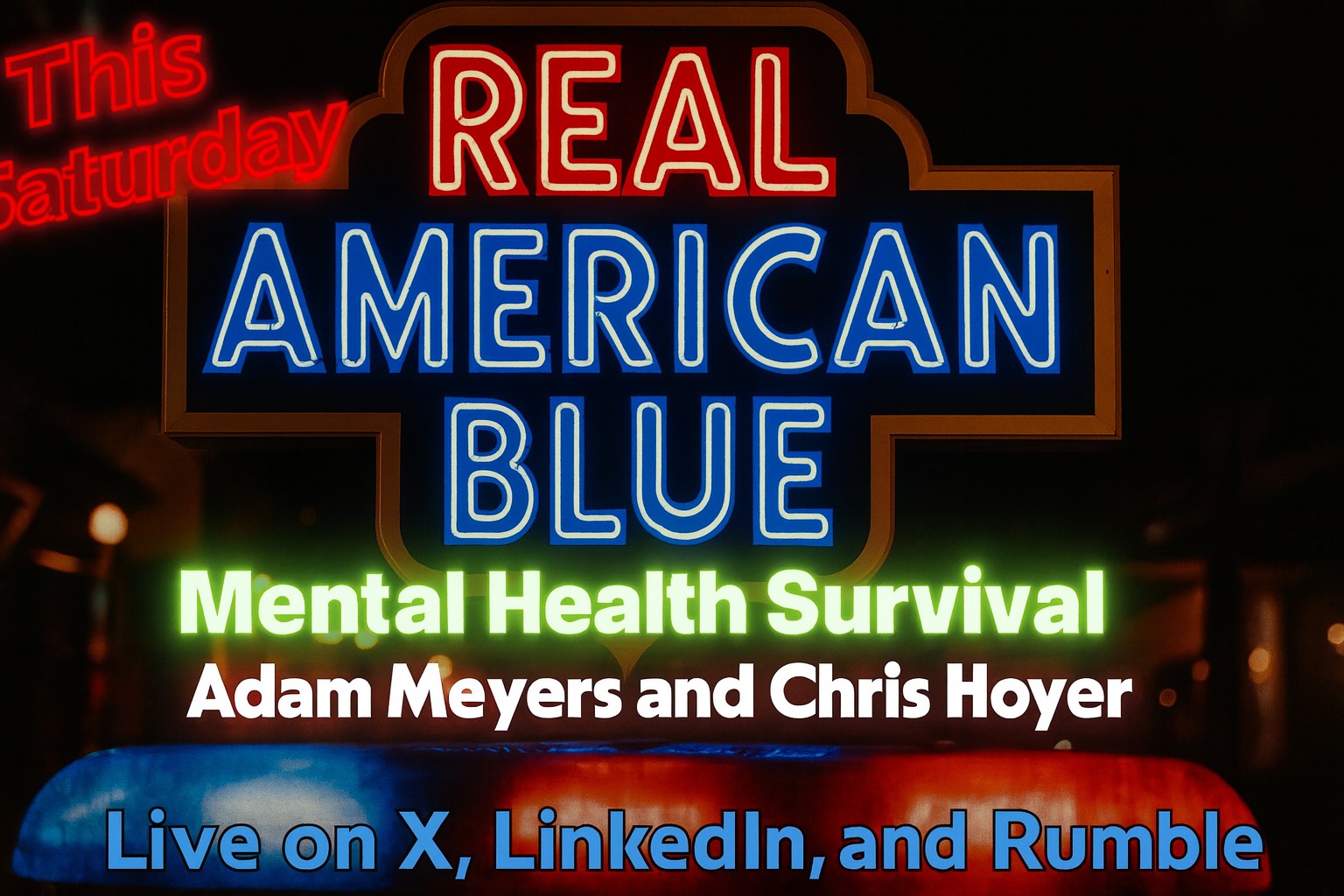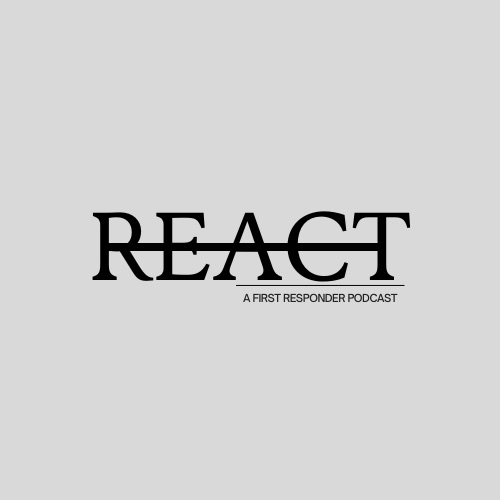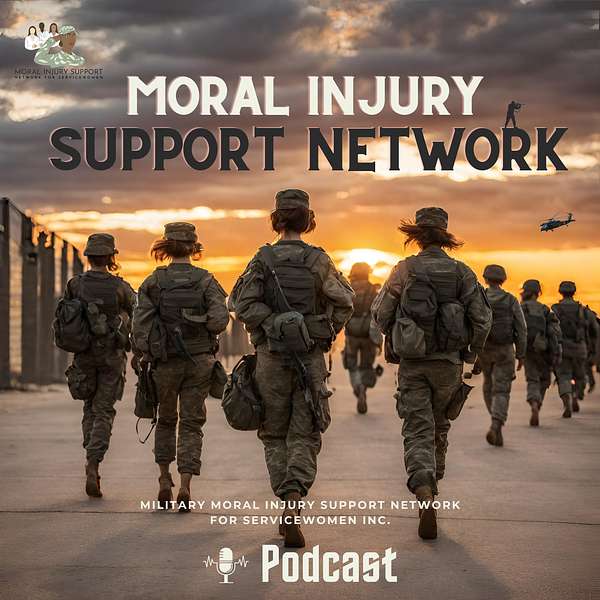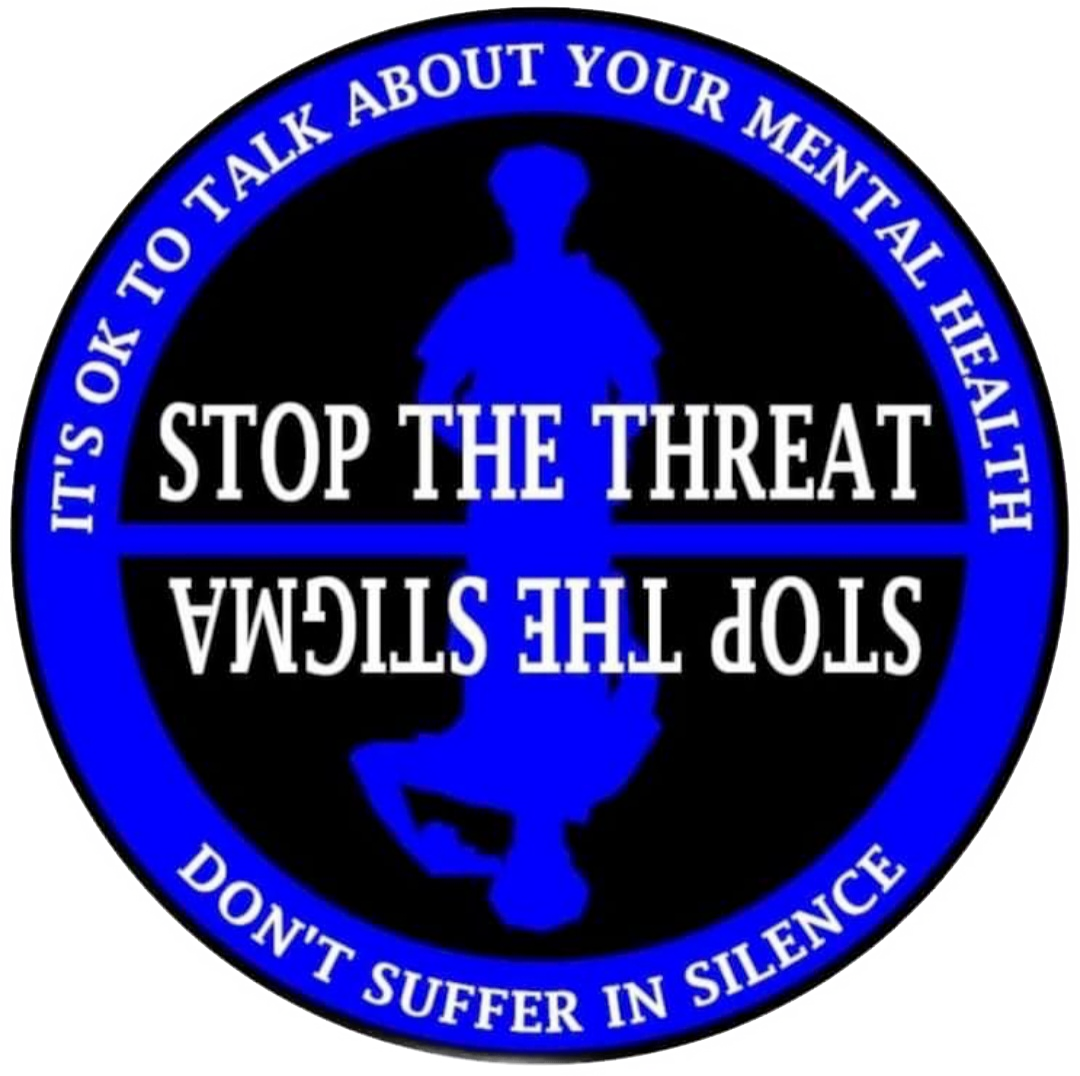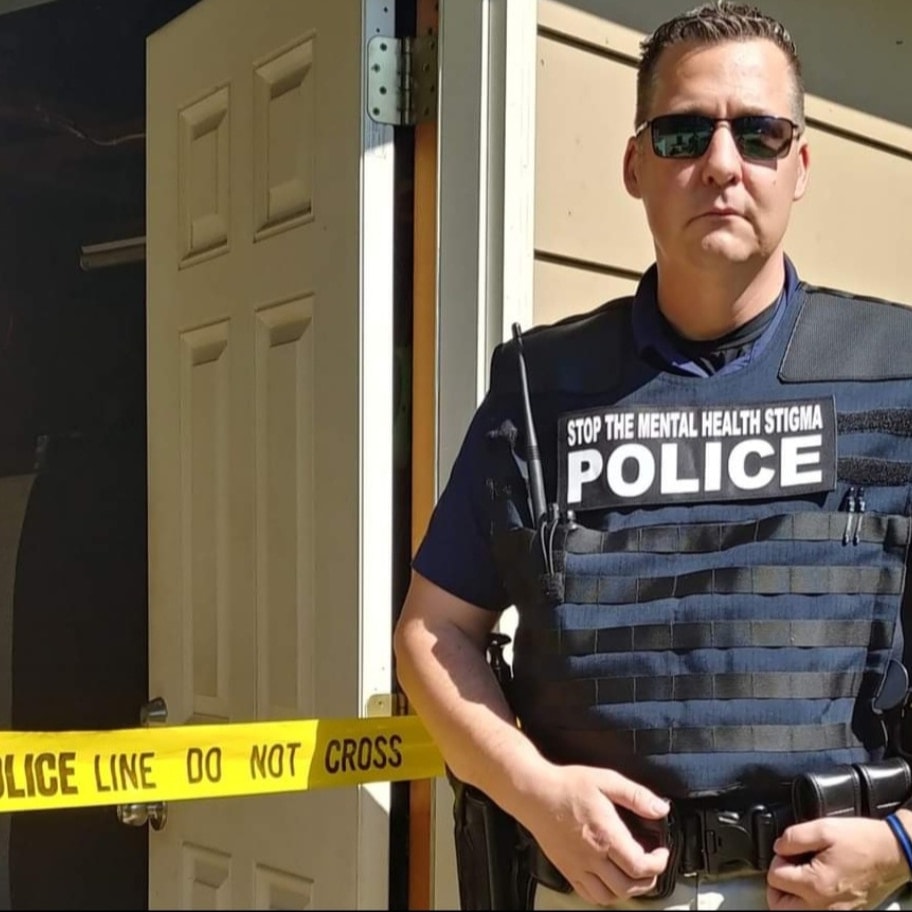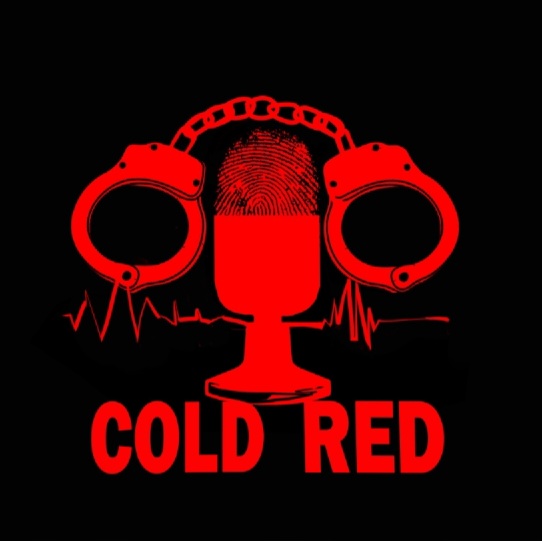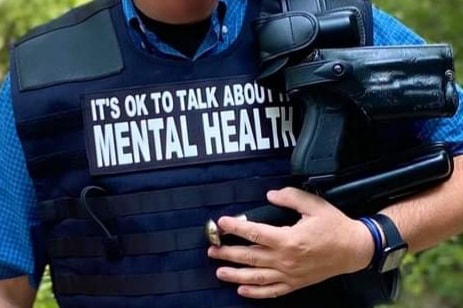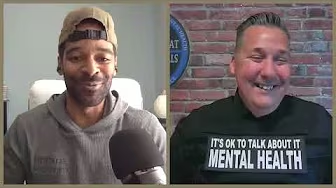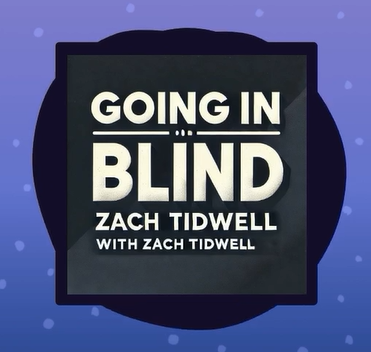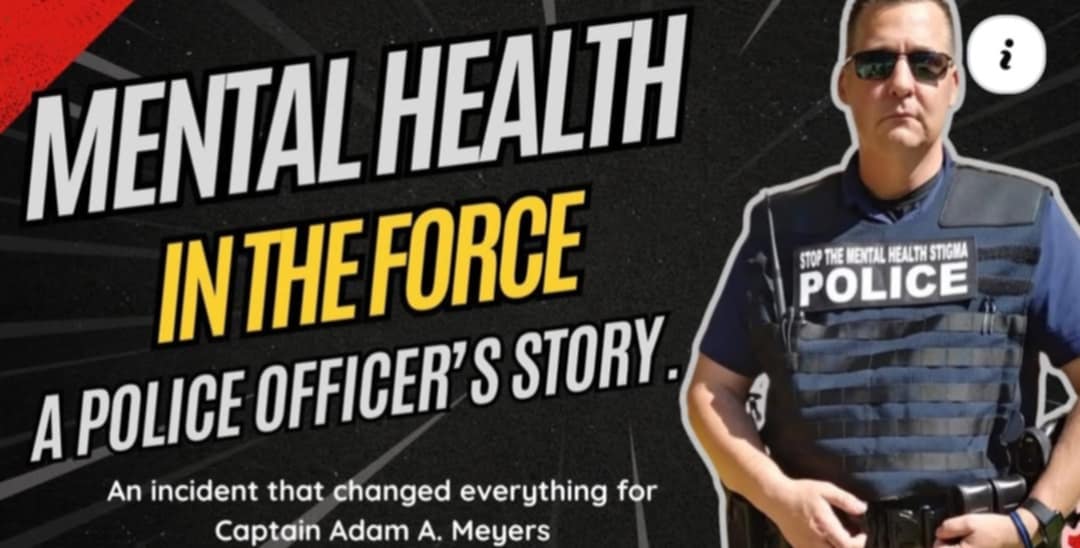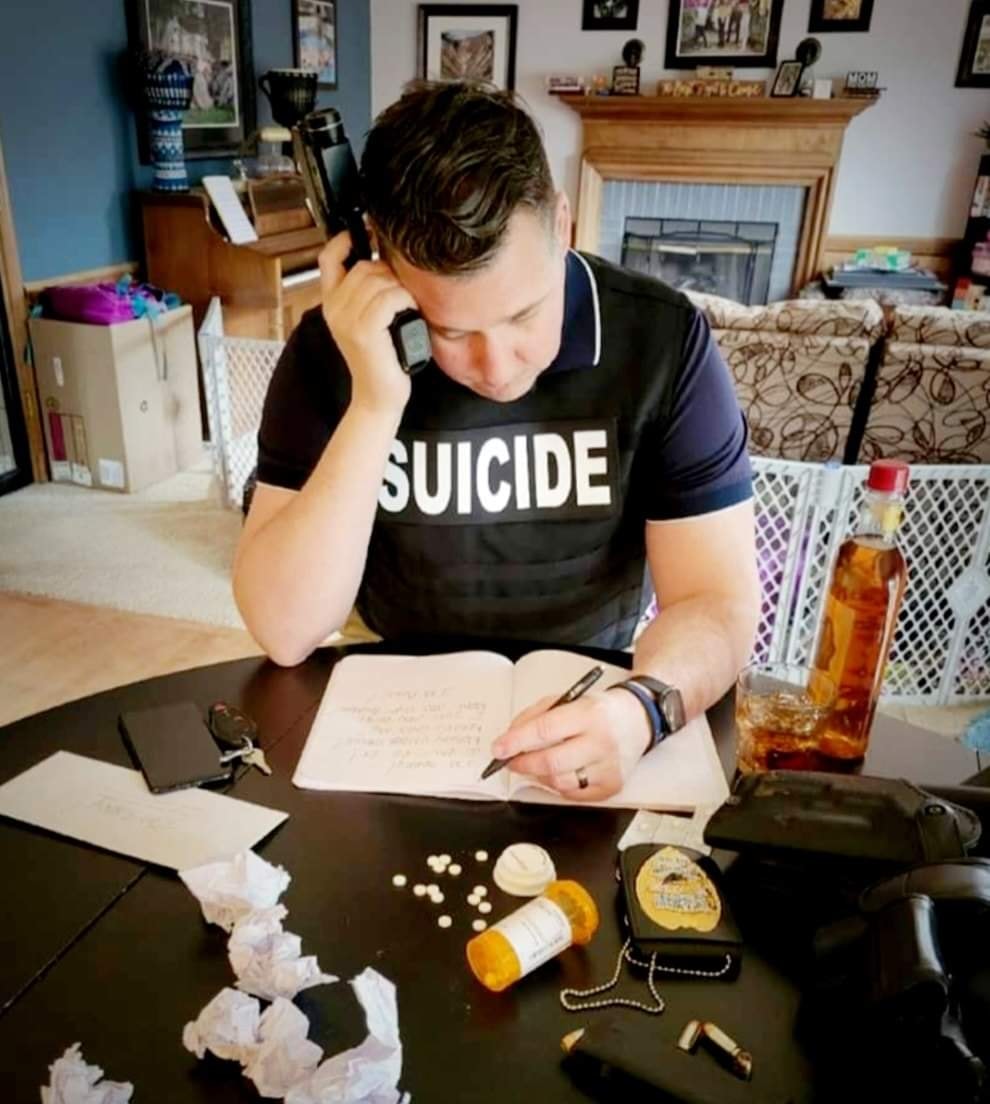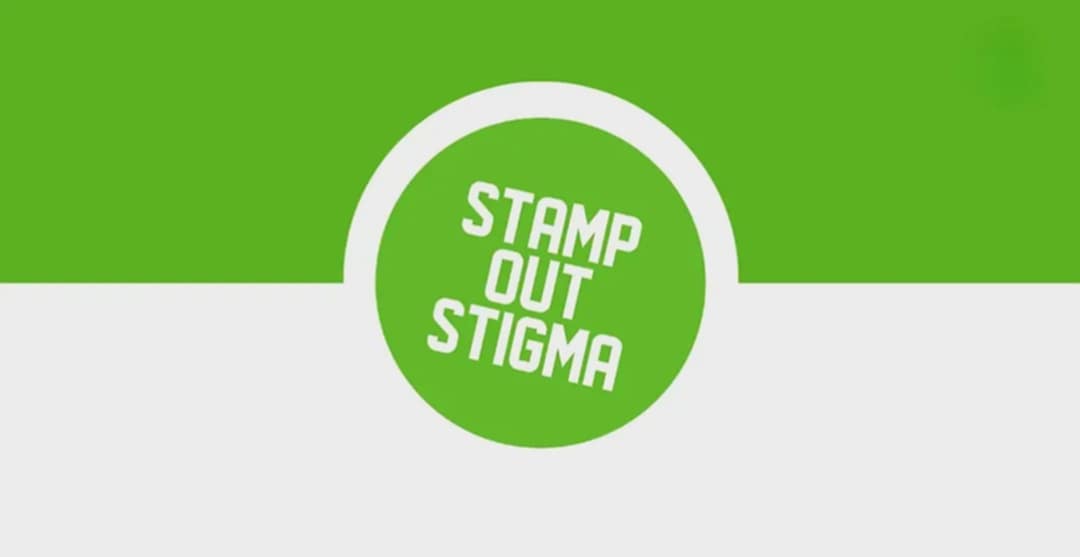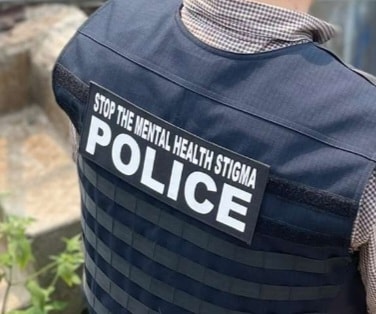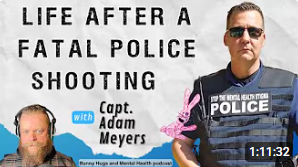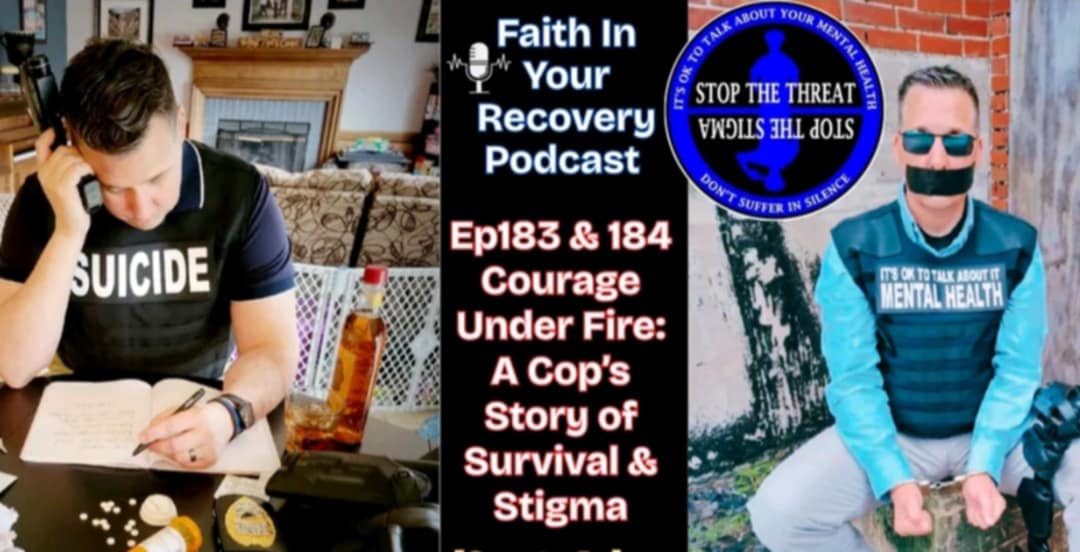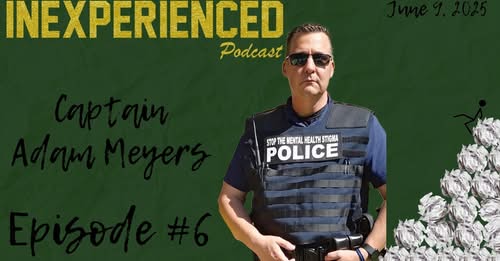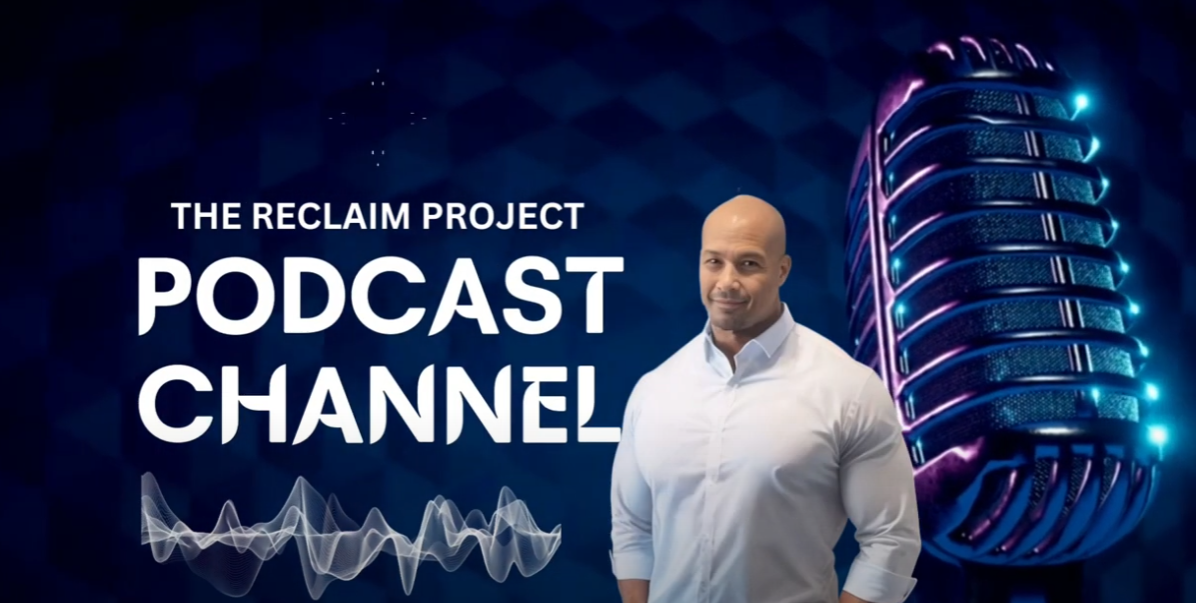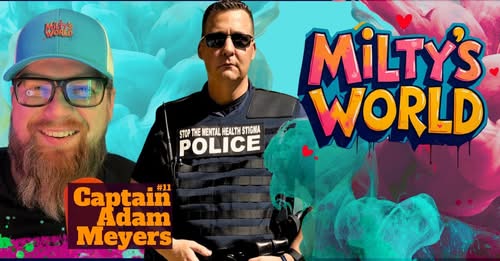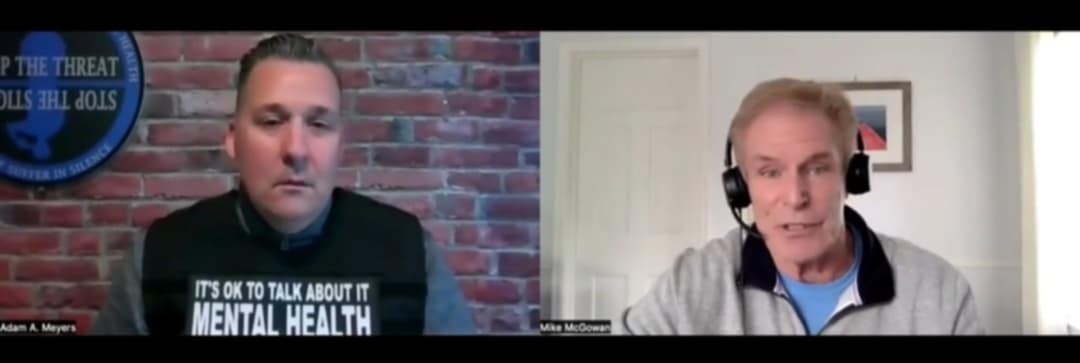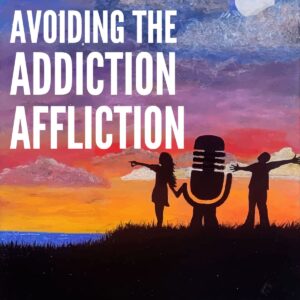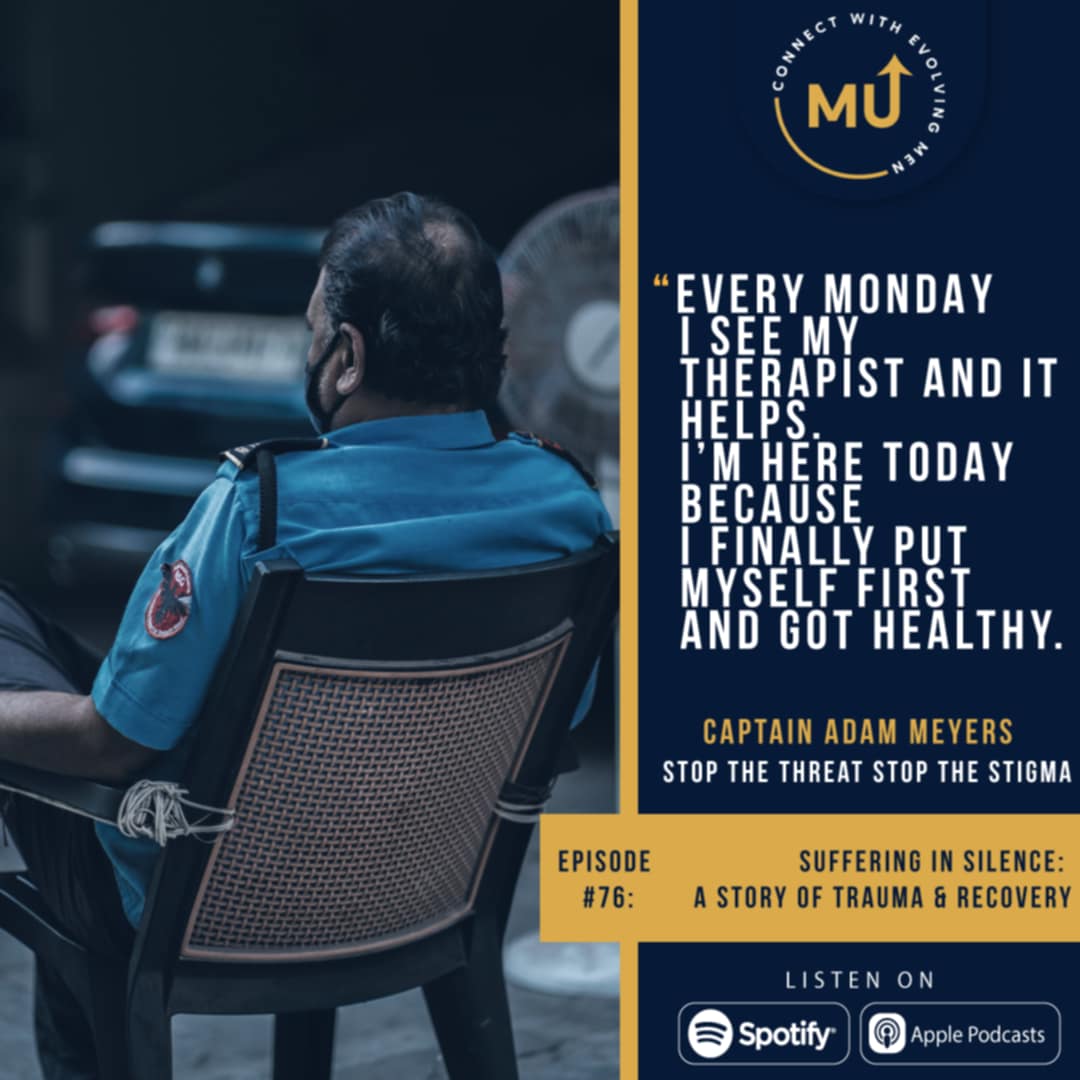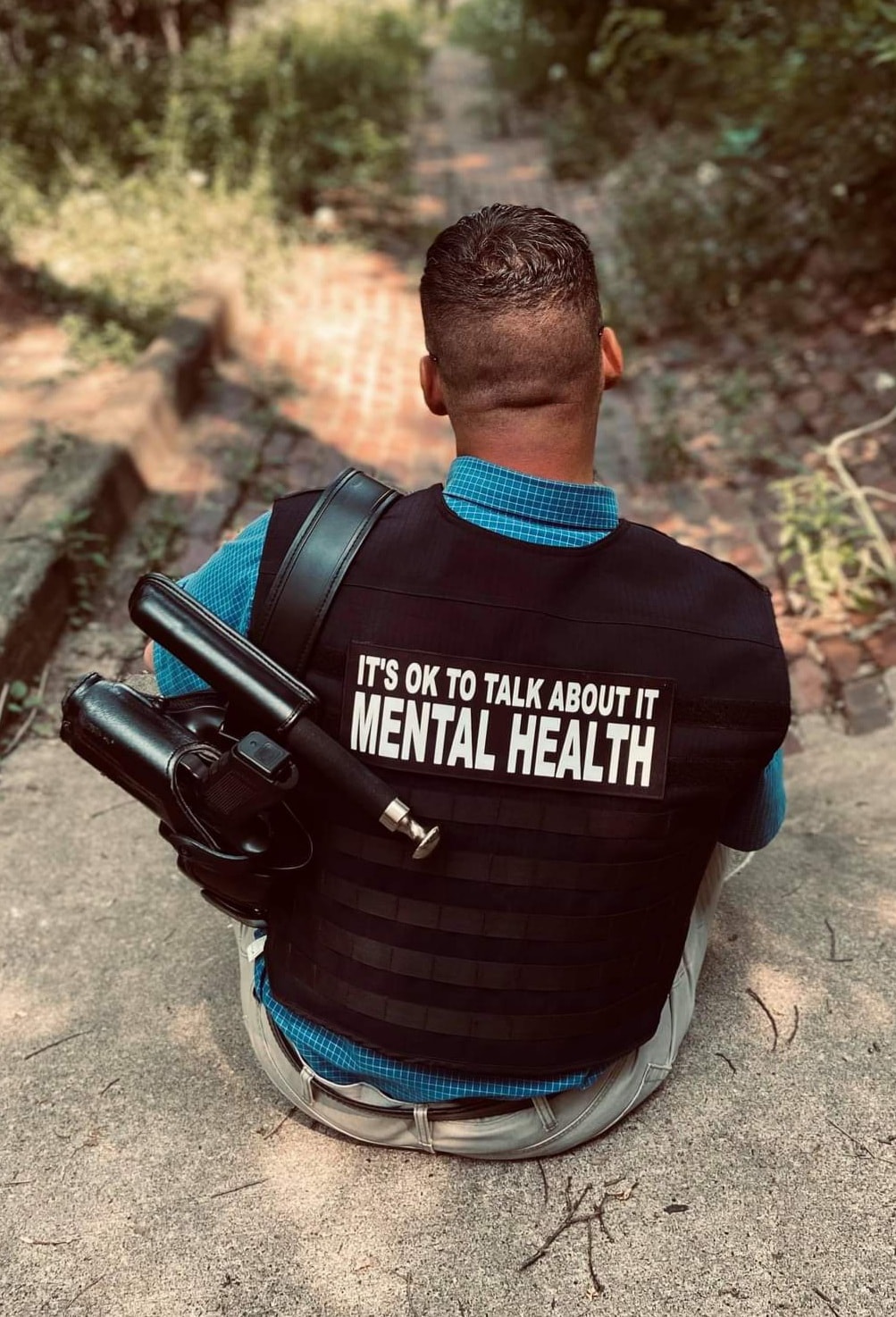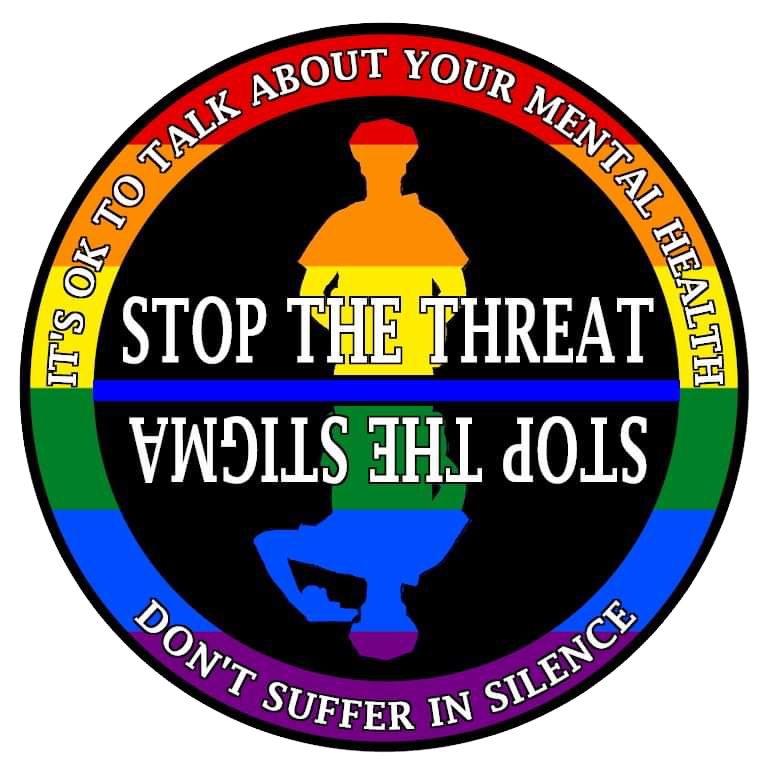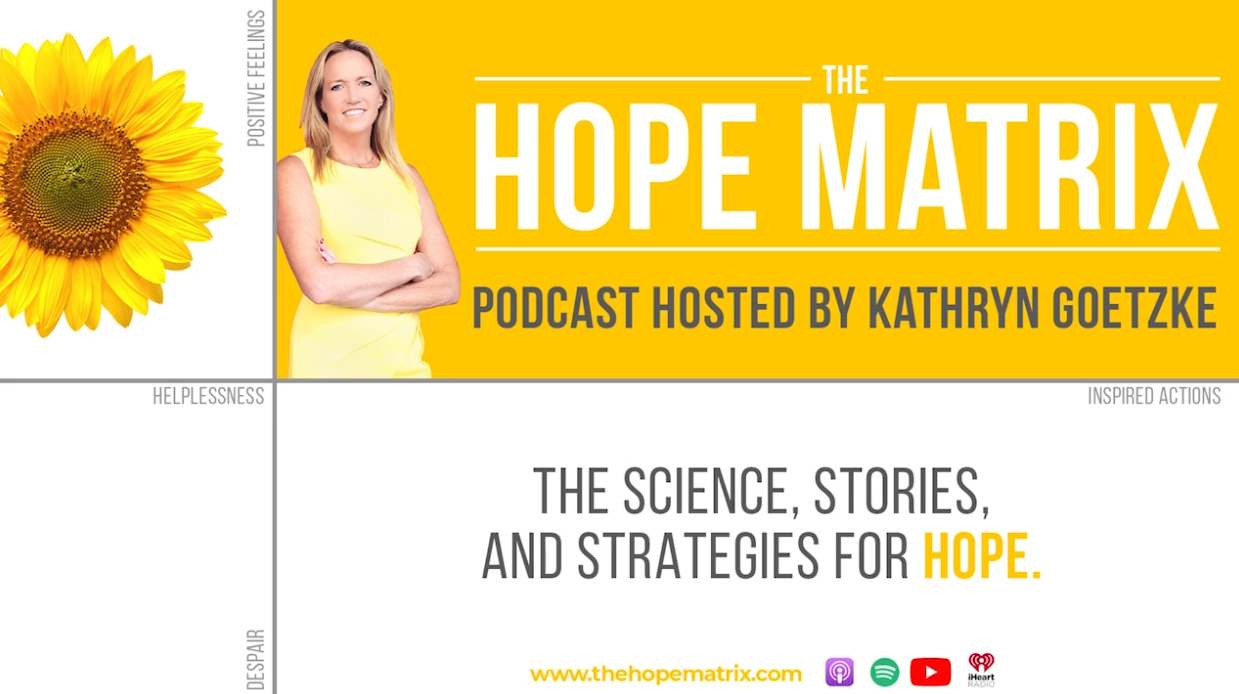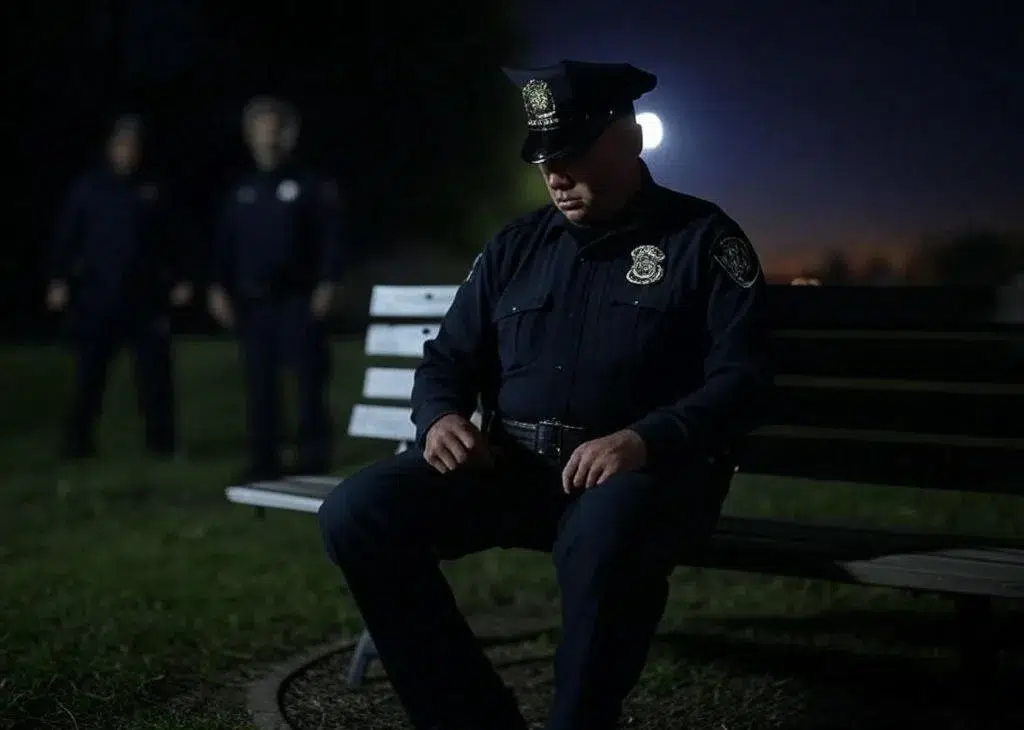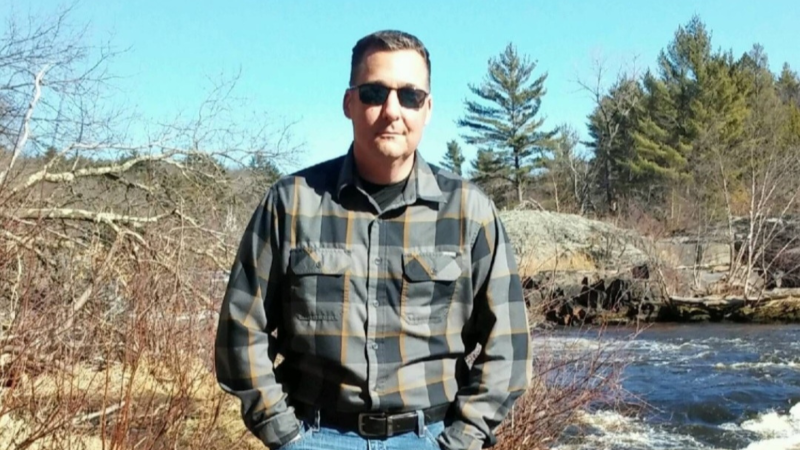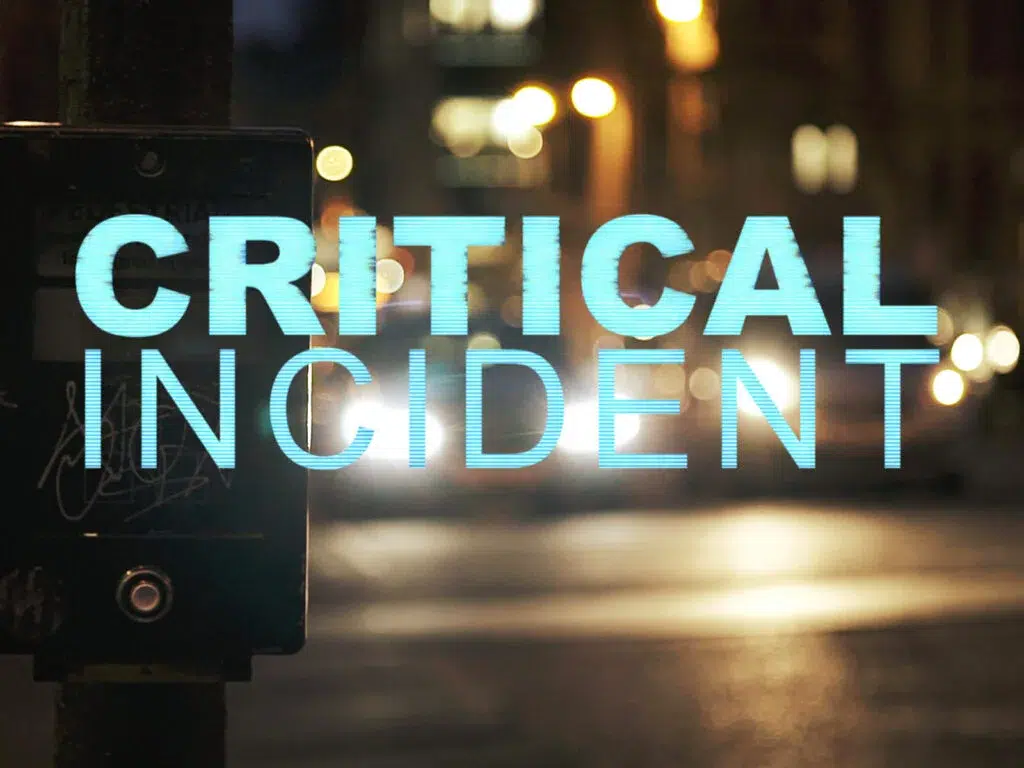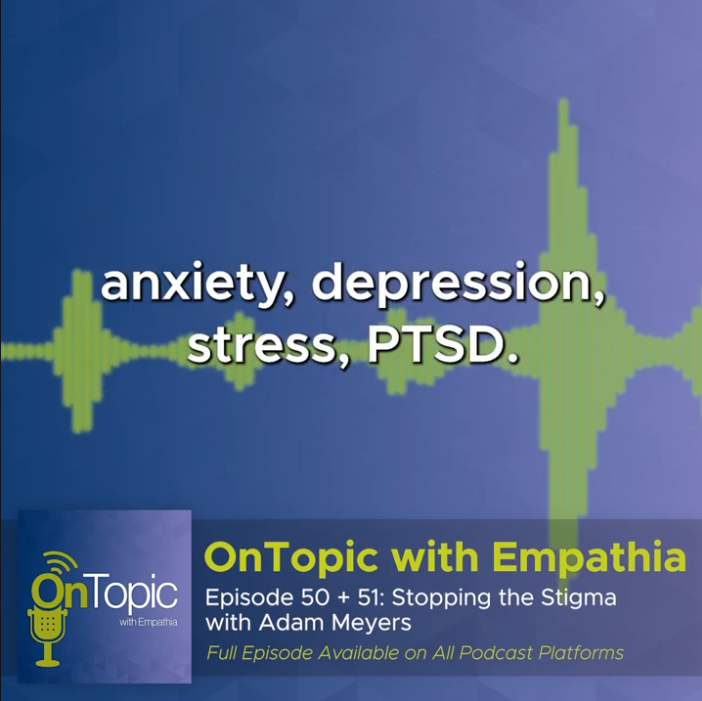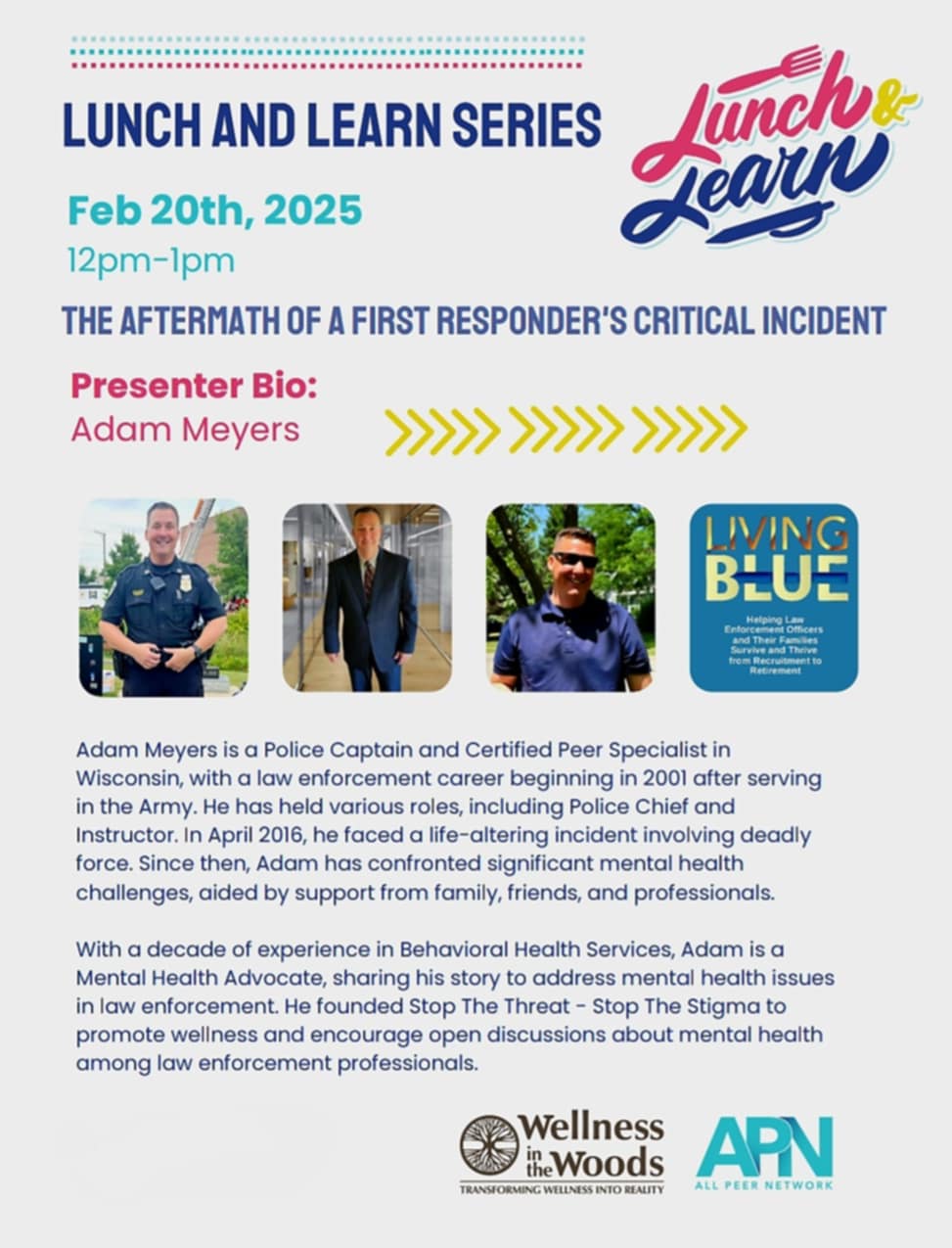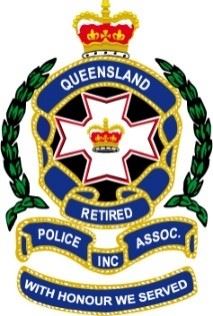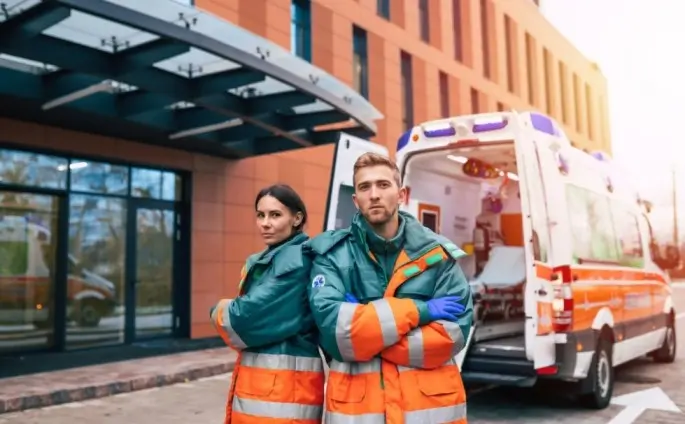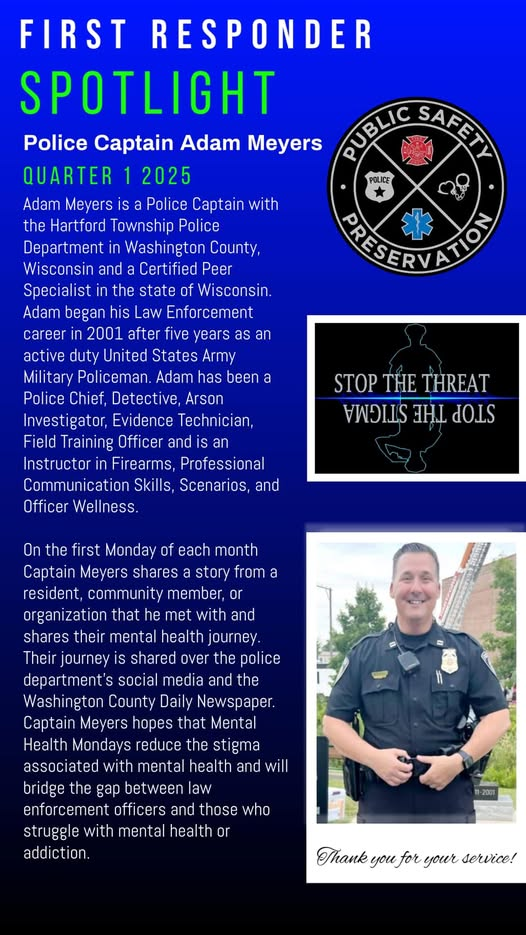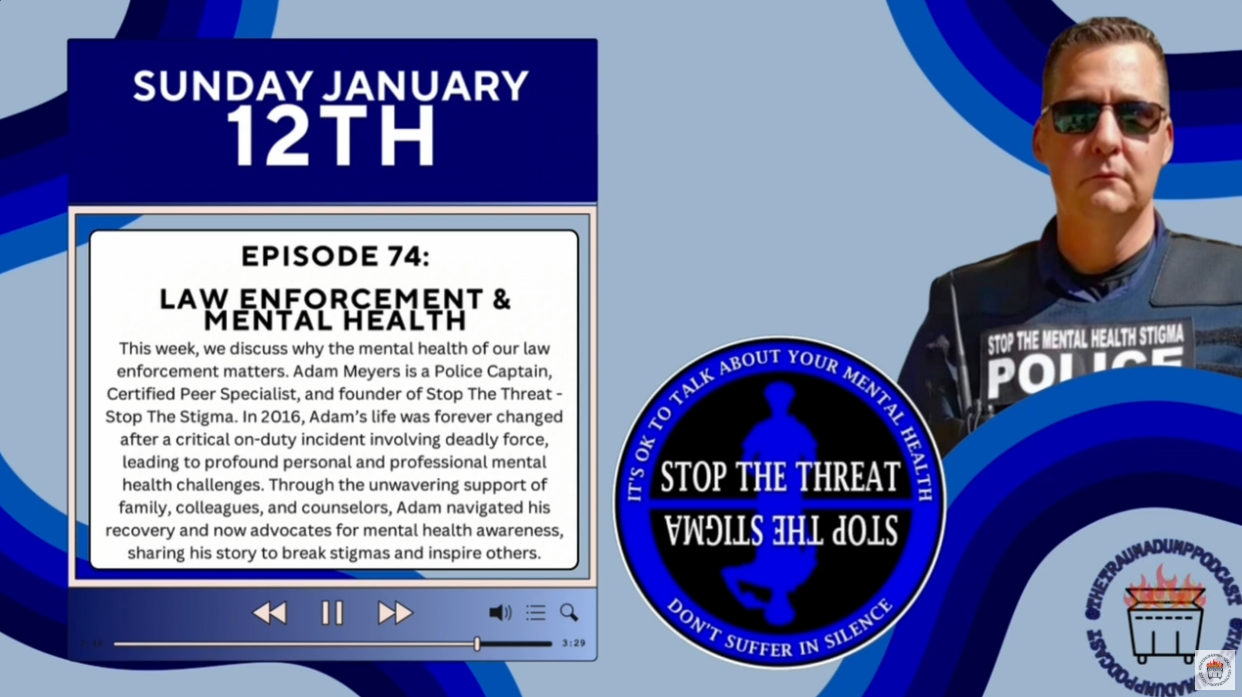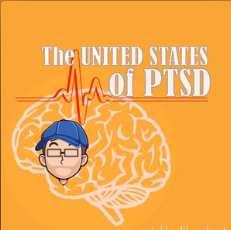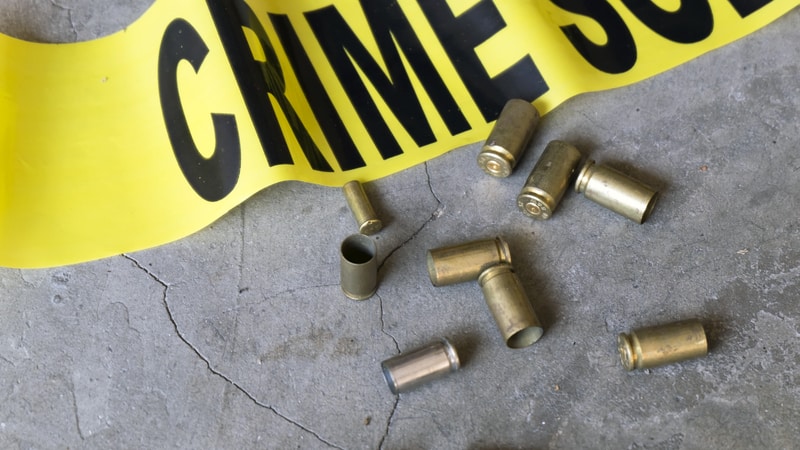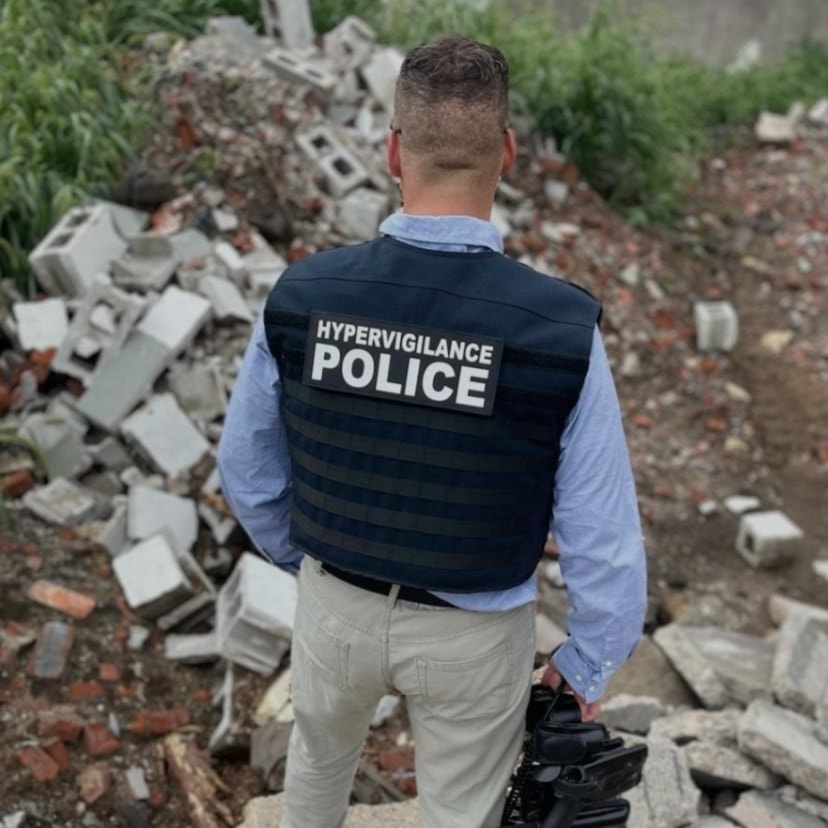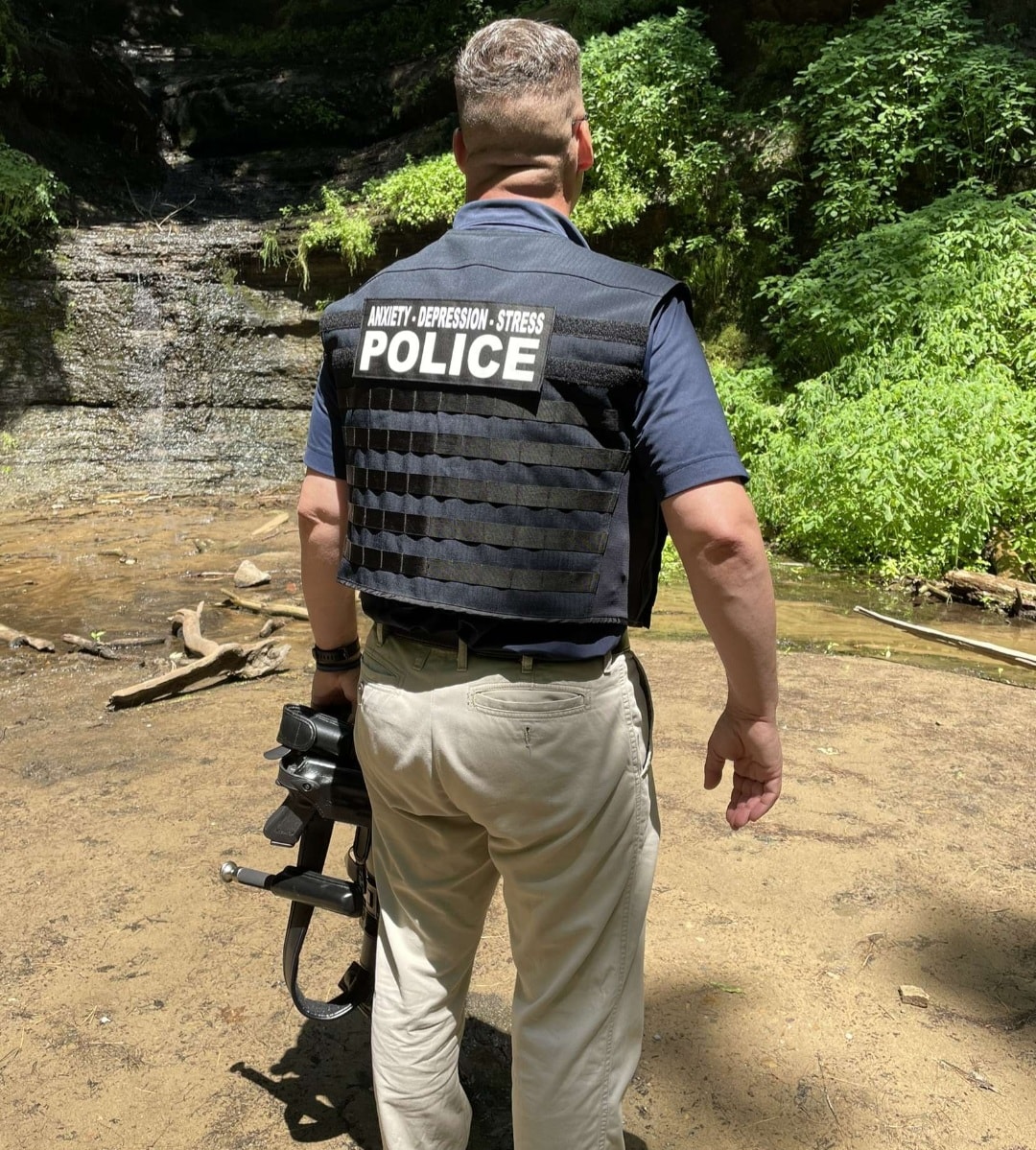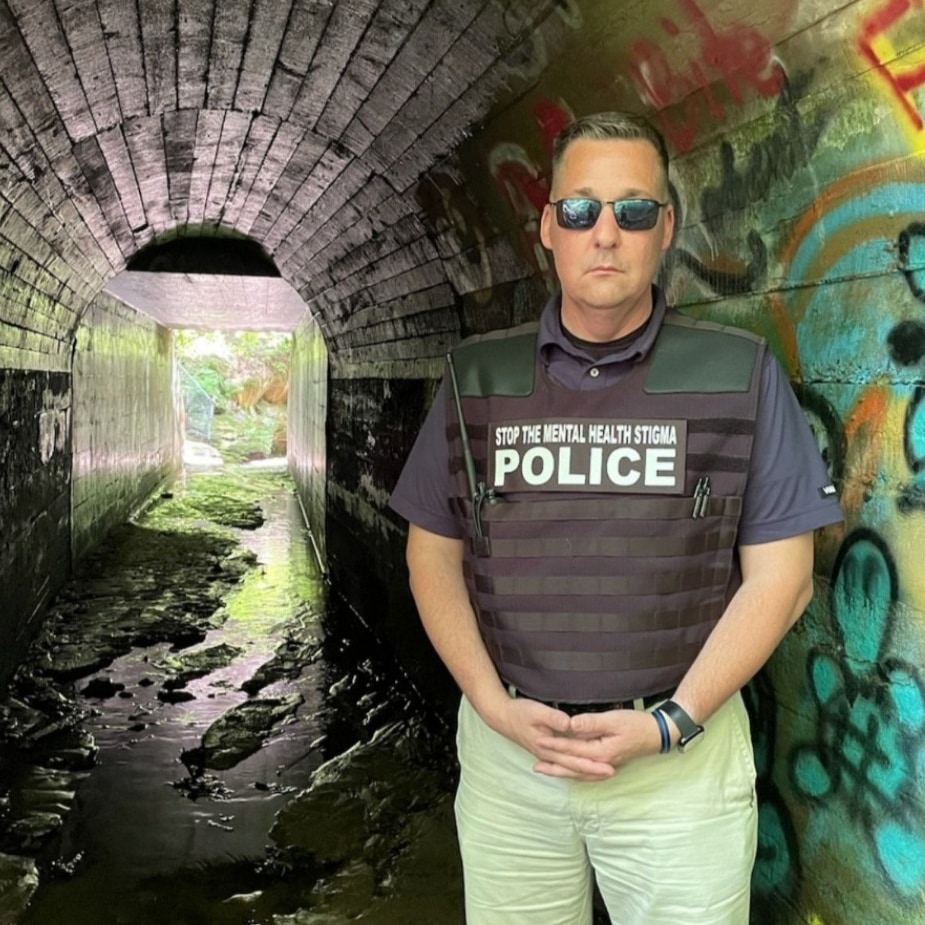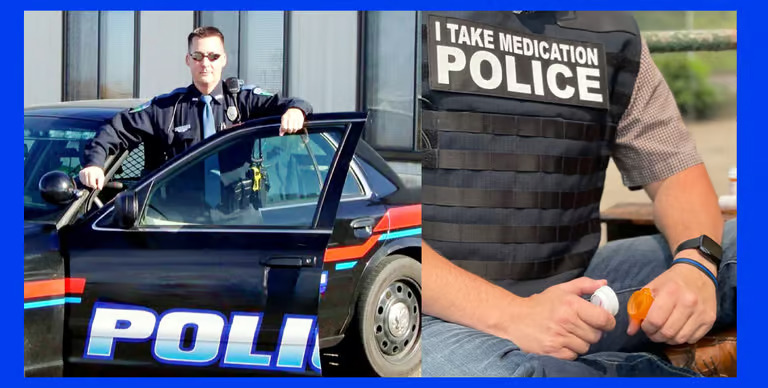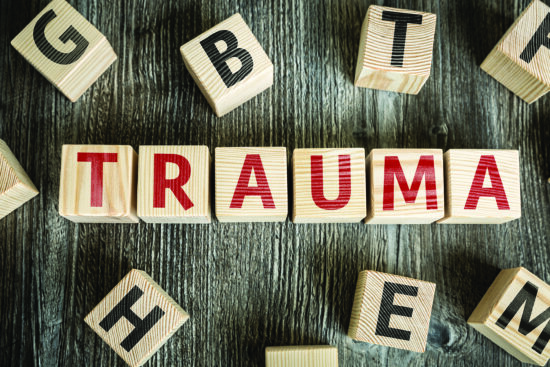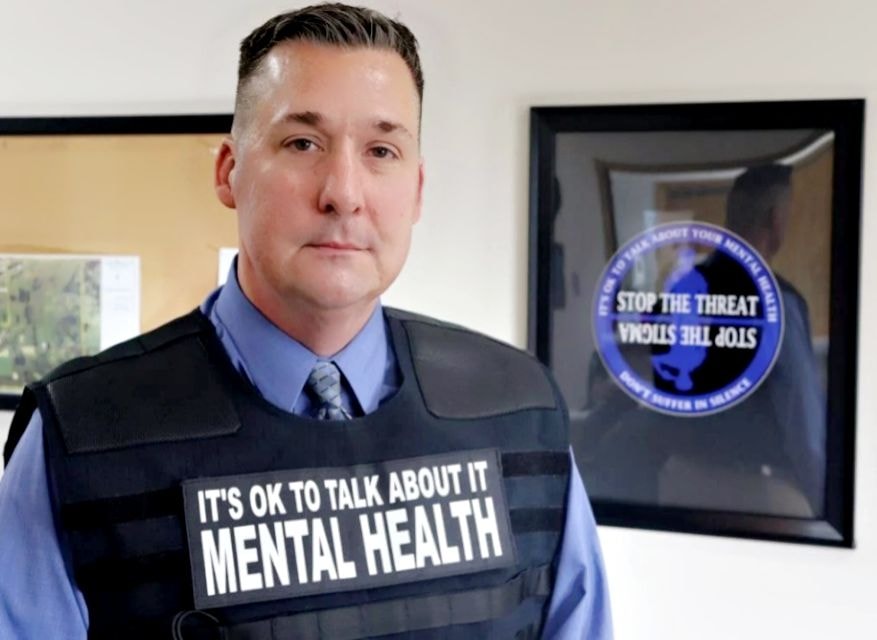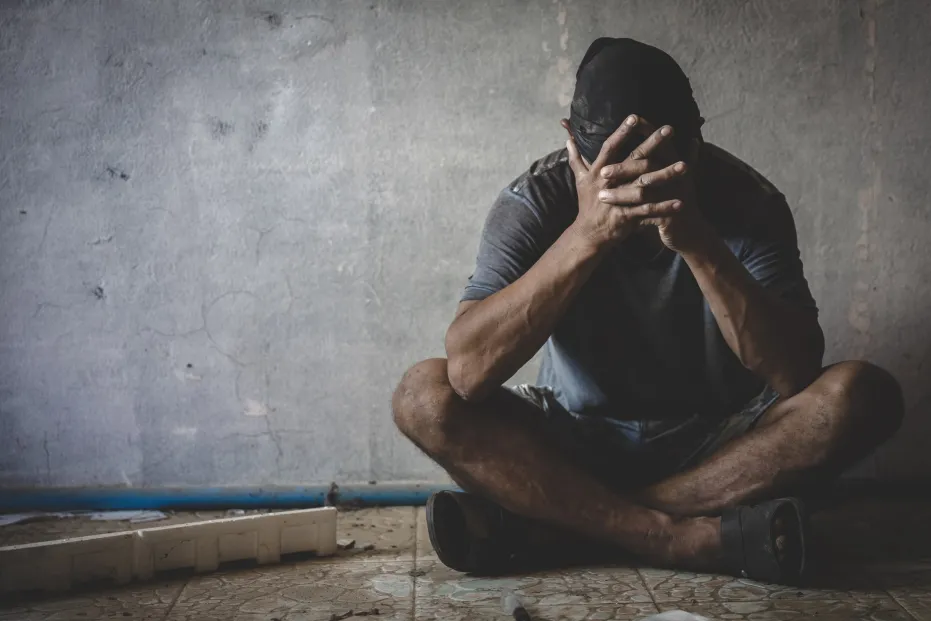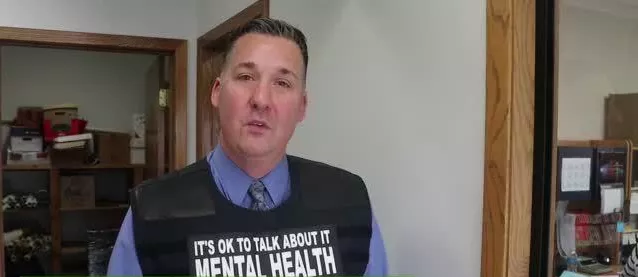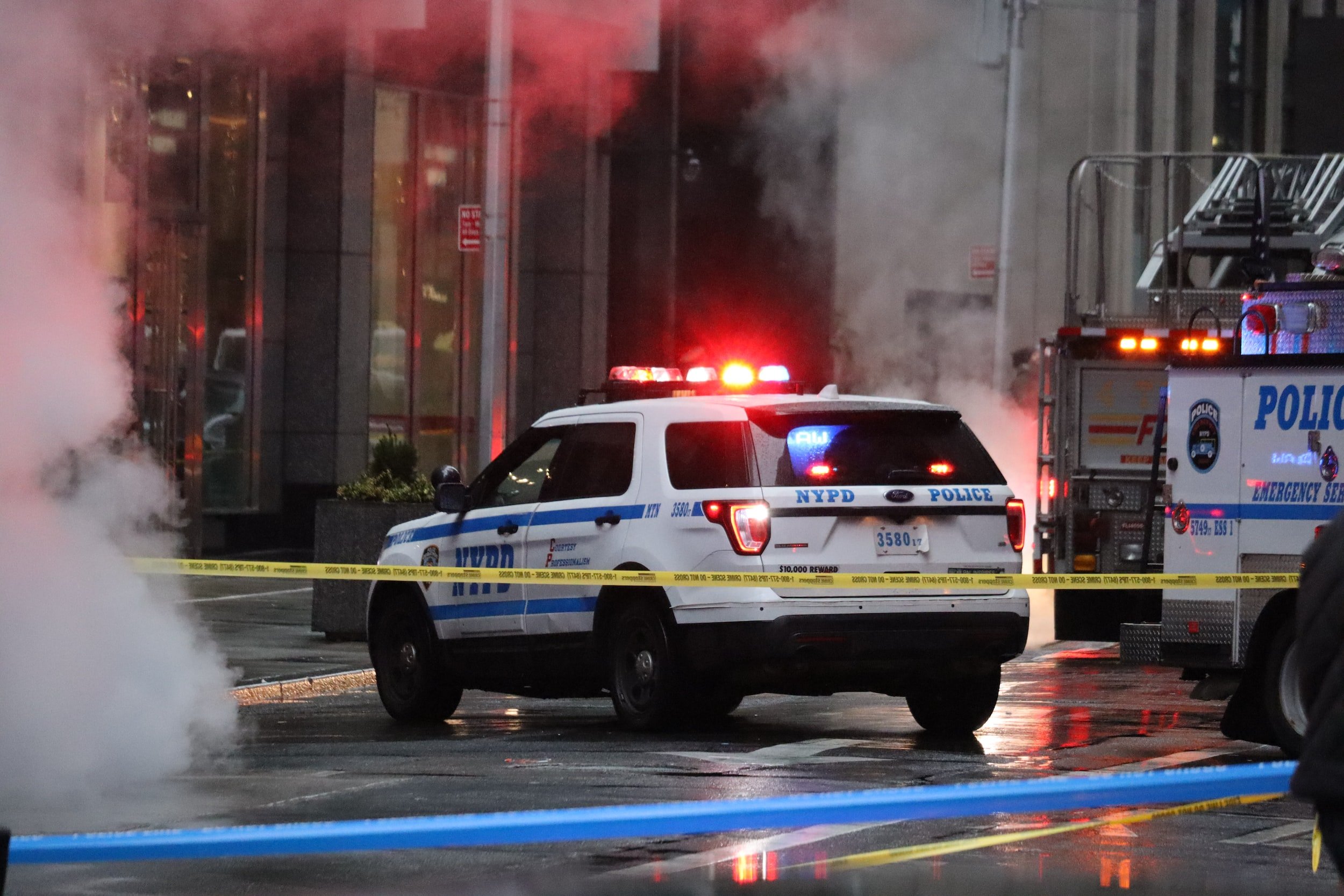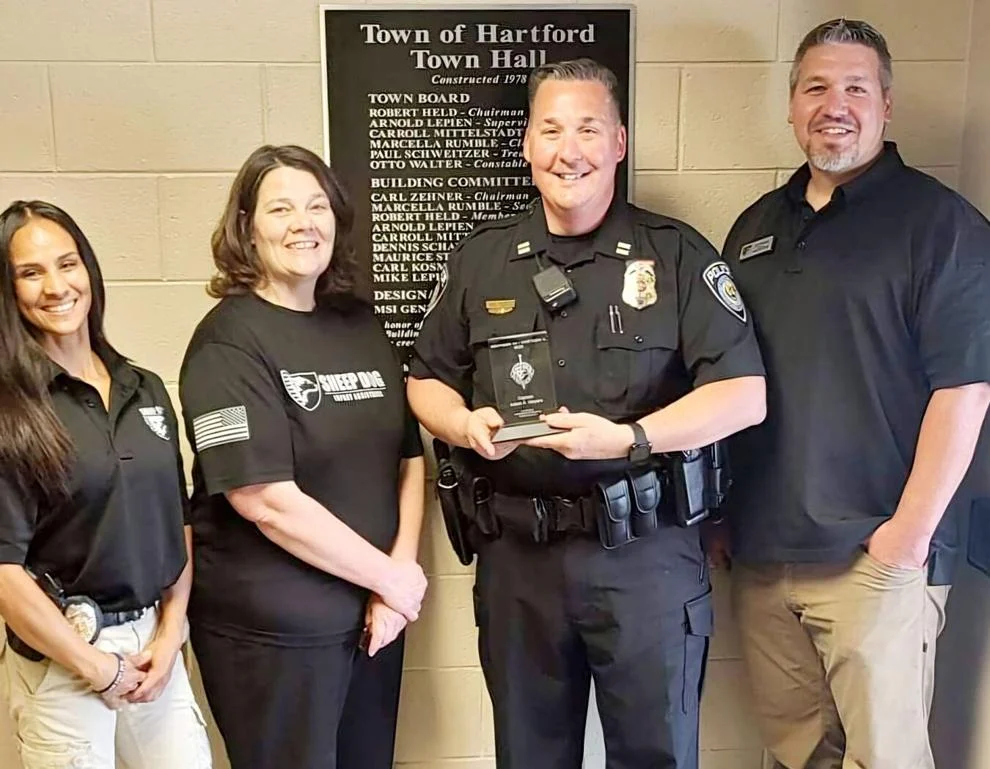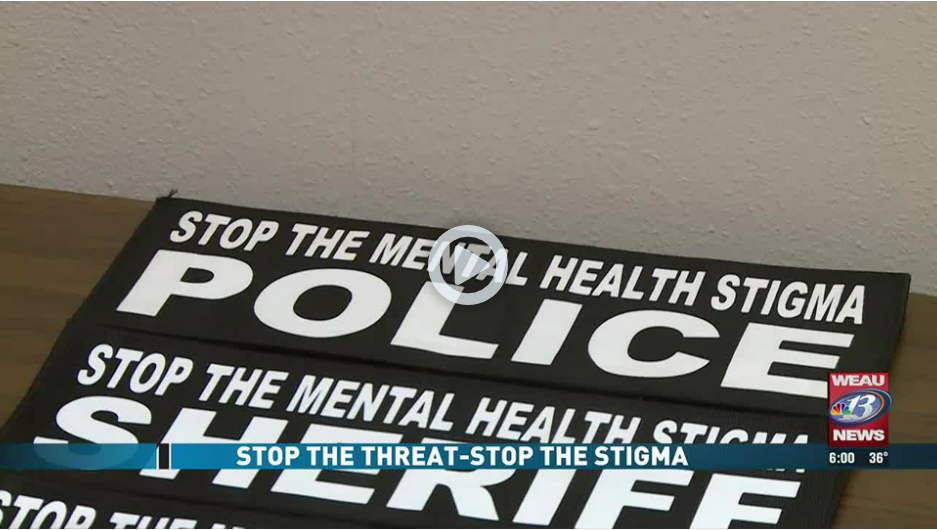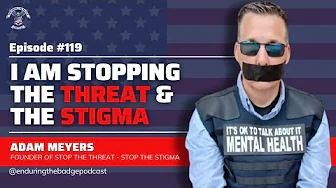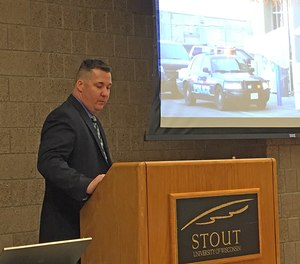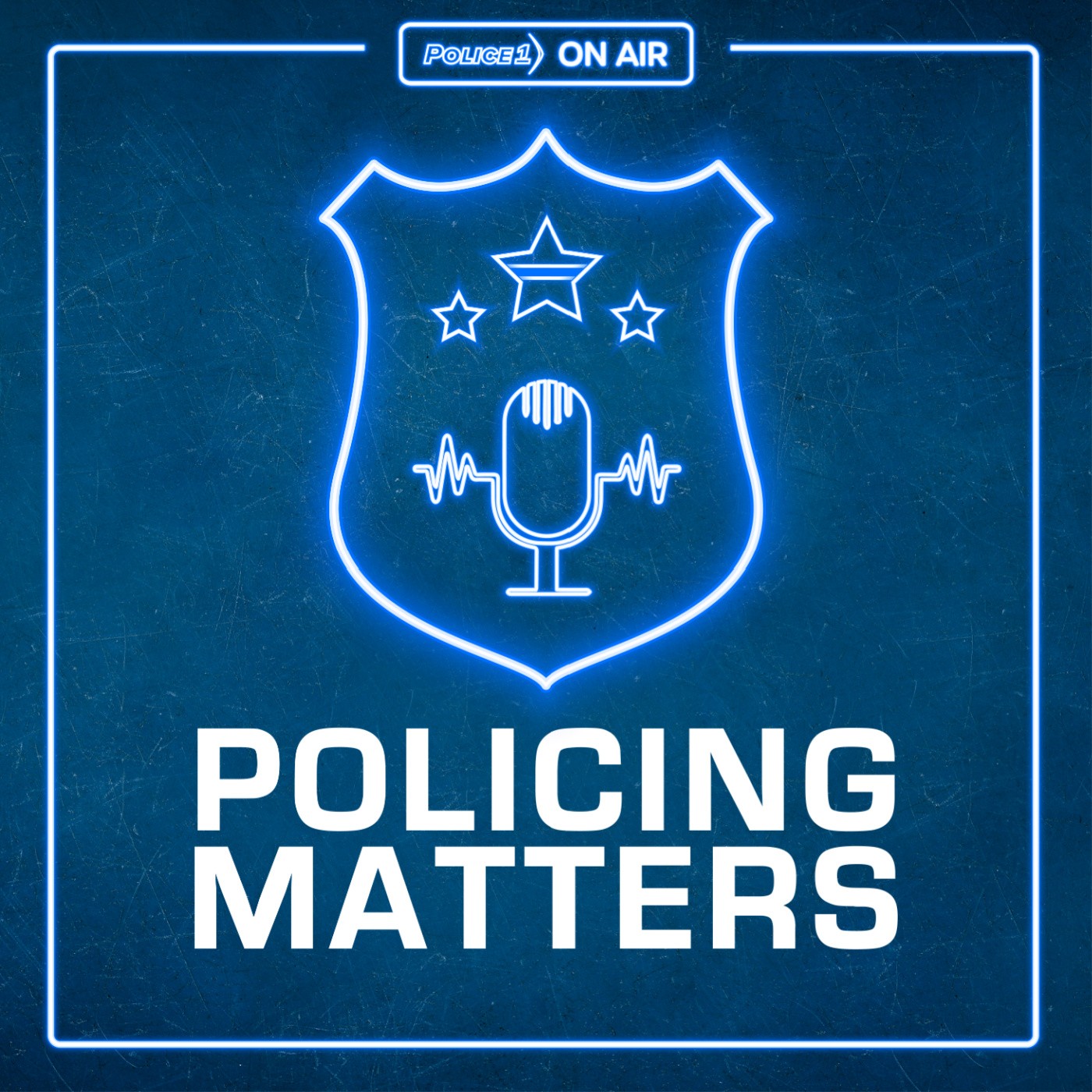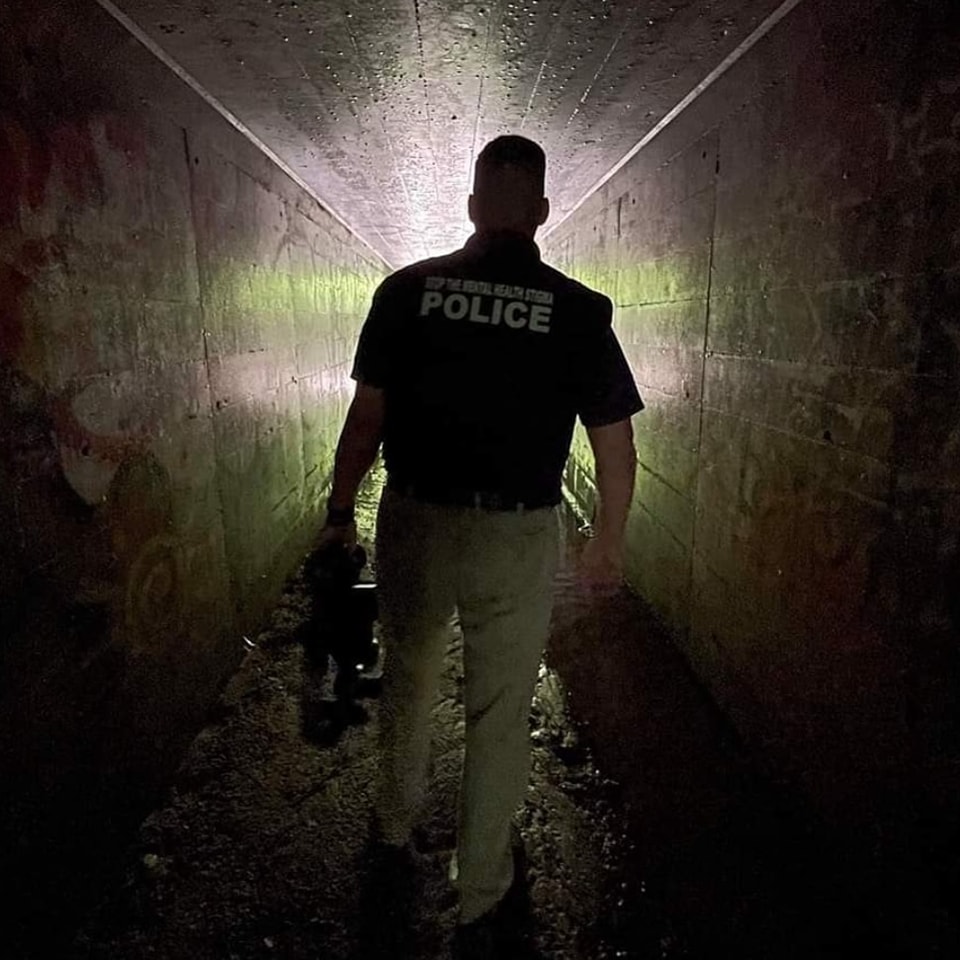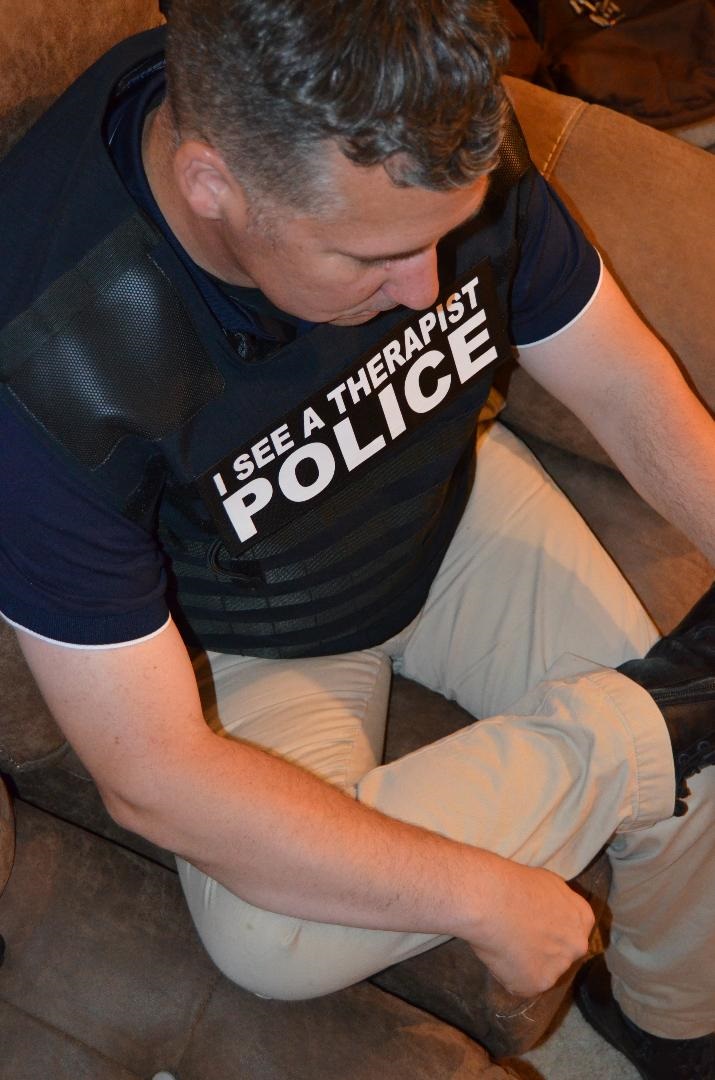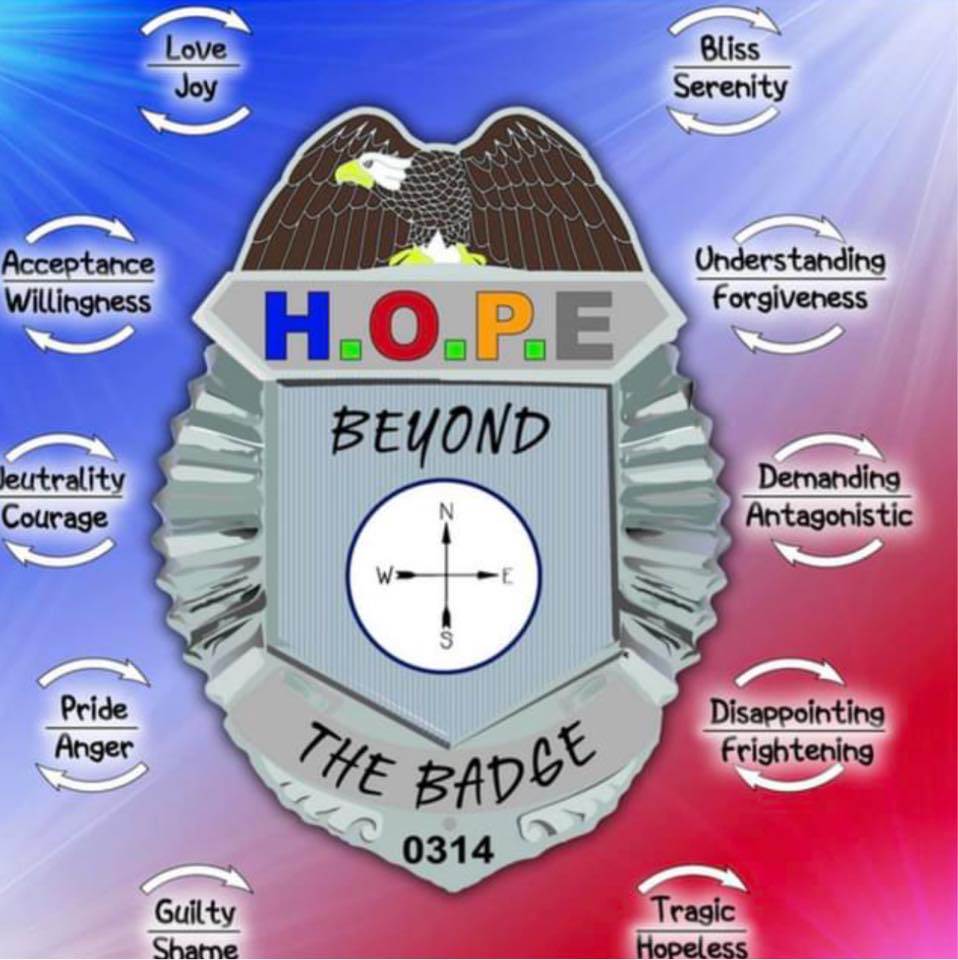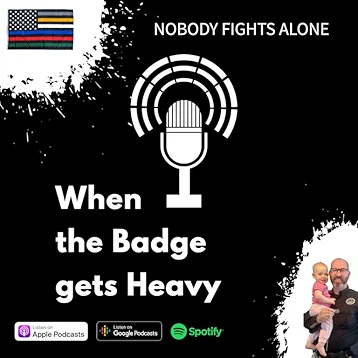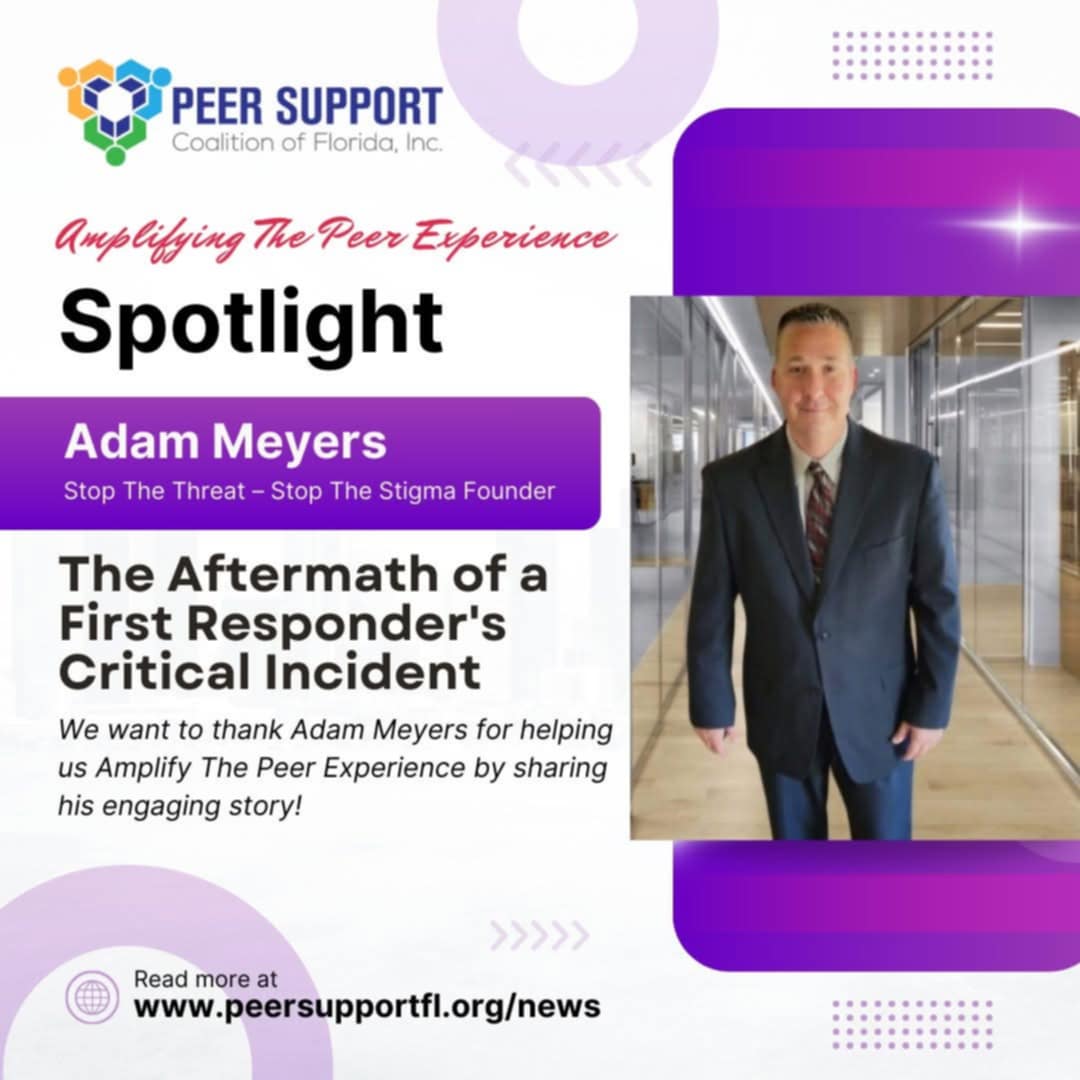Articles & Resources
Adam Meyers, Founder of Stop The Threat - Stop The Stigma has been featured in numerous podcasts, newspaper articles, etc. Below is a few samples of those features.
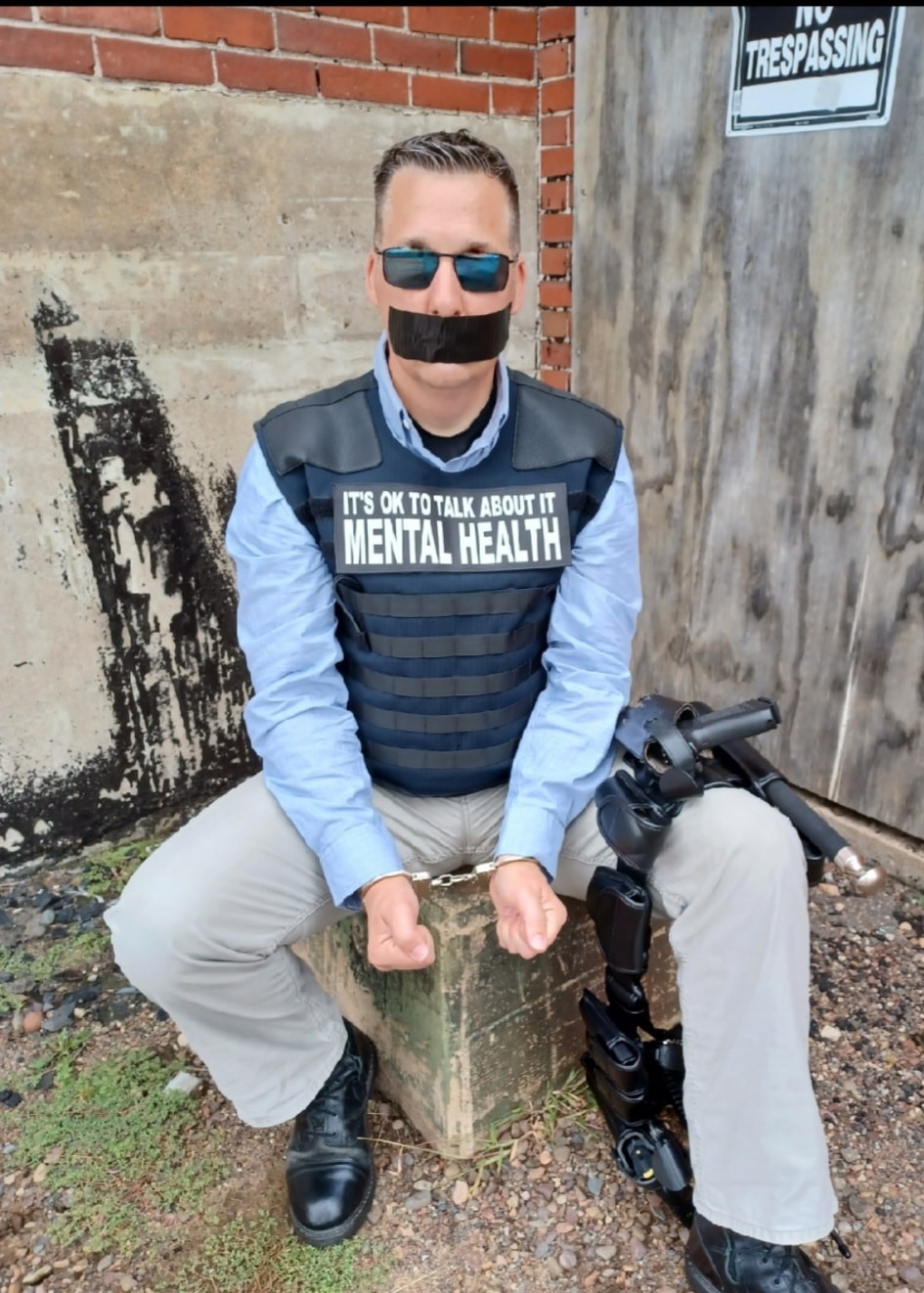
The following link contains audio of a 911 call related to a critical incident involving a fatal shooting. This content may be distressing or triggering for some individuals.
Listener discretion is advised.
Click on 911 Call image to the right to listen to the actual 911 call recording of the critical incident.
Click on image or text below to view full article or listen to podcast.
Real American Blue: Mental Health Survivial
Real American Blue speaks with Adam Meyers and Chris Hoyer, and Kristen Marcum, all survivors of law enforcement critical Incidents. They will talk about their incidents and how they overcame the mental health issues. Law Enforcement on average deals with 600 critical incidents over a career. Average citizens deal with one or two. Mental Health Survival
REACT: A First Responder Podcast Episode 4 Adam Meyers
After being involved in a shooting that ended a life, he faced the kind of aftermath that we can never prepare for. Mental health struggles, unhealthy coping, and ultimately termination. Termination from a profession many of us build our identity around. What followed was as an honest look at the realities of the stigma inside the police department.
Today, Adam is not only back to policing, but is also a voice for mental health awareness. He speaks publicly about the stigma and rebuilding despite the unfortunate events that could have taken his life. Adam founded Stop the Threat, Stop the Stigma, which focuses on officer wellness, inspiring other first responders to not only take care of their mental health, but share what they experienced and learned.
This conversation goes beyond the incident. We cover moral injury, losing the badge, rebuilding and what healing looks like when the culture tells you to stay silent. Its a powerful reminder that hitting your rock bottom doesn’t have to be the end. Recovery is possible, purpose and leadership can exist on the other side of the call.
You can find Adam Meyers on Linkedin or follow his social media pages on Facebook and Instagram for Stop the Threat, Stop the Stigma.
https://www.facebook.com/stopthreatstopstigma
If you’re interested in learning more about Adam and what he has built to address the stigma, check out his website below.
https://stopthethreatstopthestigma.org/
The Unthinkable Truth: The Price of Silence in Law Enforcement with Adam Meyers
In this episode, Adam Myers shares his profound journey as a police officer, detailing a critical incident that led to a life-altering experience. He discusses the challenges he faced in the aftermath, including unhealthy coping mechanisms and the stigma surrounding mental health in law enforcement. Adam emphasizes the importance of acknowledging the need for help and the transformative power of therapy. Through his story, he aims to inspire others to seek support and break the silence surrounding mental health struggles, particularly among first responders.
A Police Captain Confronts Moral Injury And Stigma
Police officers should no longer suffer in silence | Opinion
As we enter 2026, I want to speak directly to police officers, supervisors and leaders, not from a position of theory, but from lived experience.
Law Enforcement is a profession built on service, sacrifice and resilience, but for too long, we have ignored the toll this job takes on our mental and physical health. We’ve normalized exhaustion, emotional suppression and suffering in silence. That mindset is costing careers, families, and lives. As we start a new year, it’s time for honest resolutions and not ones that sound good on paper, but ones that actually keep officers alive and well.
A resolution for police officers, managers and supervisors for 2026
As we enter 2026, I want to speak directly to police officers, supervisors and leaders, not from a position of theory but from lived experience.
Law enforcement is a profession built on service, sacrifice and resilience, but for too long, we have ignored the toll this job takes on our mental and physical health.
Supporting officers' mental health
My name is Adam and I have been a Police Officer in Wisconsin for 23 years. I am also a Certified Peer Specialist in Wisconsin. I began my law enforcement career in 2001 after serving as an active duty United States Army Military Policeman. In April 2016, I was involved in a critical incident that changed my life forever when I used deadly force on someone who armed themselves with a hatchet inside a busy department store.
It's time to acknowledge the mental health toll of police work - Capt. Adam Meyers
Help police officers with trauma and stress to save lives | Capt. Adam A. Meyers
Law enforcement is a profession built on service, sacrifice, and resilience. But for far too long, we have ignored the toll this job takes on our mental and physical health. We’ve normalized exhaustion, emotional suppression, and suffering in silence. That mindset is costing careers, families, and lives.
Police must protect selves, each other as they serve pulbic
A Call for Change From Lived Experience
A Call for Change From Lived Experience: Police Wellness in 2026. As we enter 2026, I want to speak directly to police officers, supervisors, and leaders, not from a position of theory, policy, or best practices, but from lived experience.
Law enforcement is a profession built on service, sacrifice, and resilience. But for far too long, we have ignored the toll this job takes on our mental and physical health. We’ve normalized exhaustion, emotional suppression, and suffering in silence. That mindset is costing careers, families, and lives.
In His Own Words: Adam's Story
Full Speed Ahead: After Battle w/ Adam Meyers
Social Harmony - Time to Talk Episode 60: The Thin Blue Line
In 2016, Adam was on a routine call which turned into much more - resulting in him using his service weapon and the loss of life. While to those on the outside this may be seen as just another day on the job but for Adam the aftermath of the event led him to a deep depression and self-numbing with alcohol, drugs and casual sex to mask the pain that was underneath - a pain that he was not attending to.
Adam's subsequent termination, year of recovery and return to the force all served as important lessons and led to the formation of 'Stop The Threat, Stop The Stigma' - an organisation that encourages first responders to acknowledge the cumulative trauma from the situation faced daily and seek the appropriate supports - but also encouraging a culture that makes it normal for people to reach out without shame.
2nd Annual Performing Arts Benefit: Adam's Story
When the Hartford PD and Washington County Sheriff’s Department solved Jessie’s case and treated my family so well during that difficult process, it changed how I see police officers. Now, LOVE>hate works with law-enforcement academies, helping new cadets better understand victims, and also themselves, so they’re more prepared to serve with wisdom and compassion, and to deal with trauma in healthy ways. And we partner with inspiring people like Adam and his organization Stop The Threat – Stop The Stigma. Because violence affects everyone. And Forgiveness can heal anything.
Wisconsin officer to speak to area residents about Mental Health
ST. JOSEPH, Mo. (KQTV) -- A Wisconsin Police Officer is on a Mental Health journey, after recovering from a critical incident in 2016, helping first responders to everyday people stop the stigma around talking about their issues.
Breaking the Silence: Mental Health in Law Enforcement
In this episode of Cold Red, host Ray Carr and Fitz interview Adam Myers, a police captain who shares his journey through mental health challenges following a life-altering shooting incident. Adam discusses the stigma surrounding mental health in law enforcement, the importance of seeking help, and the resources available for first responders. He emphasizes the need for open conversations about mental health and the impact of trauma on police officers. Adam's story serves as an inspiration for others facing similar struggles, highlighting the significance of support systems and therapy in the recovery process.
Psychology Social Hour - Glore Psychiatric Museum
Experience the powerful conversation with Capt. Adam Meyers, founder of Stop The Threat, Stop The Stigma. Watch the replay and hear his incredible journey through trama, circumstances, and healing. It's a story that inspires reflection, resilience, and hope.
God’s Plan: The Aftermath and Mental Health of a Police Officer’s Critical Incident
Telling My Story: My Coping Mechanisms After Experiencing Trauma
My poor coping strategies easily put my relationships, job, and health at risk, but I did not care. I wanted to escape from what I was feeling. I wanted to numb my emotions, my thoughts, my body, and any memory of taking someone’s life. I wanted to feel better, even if only momentarily. I was selfish, reckless, and I did not care how my self-destructive and dangerous behavior may have affected my family, friends, children, co-workers, and the public.
A Police Officer’s Journey Through Trauma, Shame, and Healing with Adam A. Meyers -Mentally Shredded
This isn’t just a story. It is a raw, unfiltered journey through trauma, silence, and redemption. In this powerful episode, we sit down with Adam A. Meyers, a 23-year law enforcement veteran and former U.S. Army MP, who opens up about the 2016 critical incident that shattered his world and how he fought his way back to purpose.
Adam’s courage to relive his darkest days, abusing alcohol, masking pain with casual sex, lying to avoid work, and spiraling into self-harm, will leave you breathless. But his recovery through therapy, faith, vulnerability, and honesty will leave you inspired.
👤 About the Guest Adam Meyers is a certified peer specialist and mental health advocate on a mission to stop the threat and stop the stigma. After surviving the weight of silence, he now speaks up so others don’t have to suffer alone.
🔹 Key Takeaways
🔹 Trauma doesn’t end when the crisis does. Adam reveals the emotional toll of a justified shooting and how it haunted him for years
🔹 Poor coping is still coping. He breaks down the destructive ways he numbed pain and why they only deepened his suffering
🔹 Silence is heavy. You’ll learn how the burden of hiding his struggle nearly cost him everything
🔹 Healing is possible. From therapy and medication to deep conversations with his daughters, Adam shows what growth looks like in real time
🔹 You are not alone. His message to fellow police officers and anyone in pain is clear. There is life beyond the breakdown
If you would rather watch the video, click on the above image or this text.
God’s Plan: The Aftermath and Mental Health of a Police Officer’s Critical Incident
Right now among our first responders and the various branches of the military, including land, air, and sea, there is this stigma around mental health. To admit it could put their careers at risk and they feel ashamed as they are trained to be tough and ignore the suffering that hey endure in their minds. Captain Adam A Meyers wants this to change and knows that this will require people speaking up about it and showing that their is no shame. A different former ordinance specialist who was in Iraq and Afghanistan disarming roadside bombs and clearing up the aftermath of these explosions has told me the same thing. He told me that their commanders don't want them to talk about it and so dealing with it became a personal struggle. I was also informed that no one comes out of a war zone or first responder career without some form of PTSD. Its time that we provide an avenue for them to speak out about this.
Supporting officers' mental health
My name is Adam and I have been a Police Officer in Wisconsin for 23 years. I am also a Certified Peer Specialist in Wisconsin. I began my law enforcement career in 2001 after serving as an active duty United States Army Military Policeman. In April 2016, I was involved in a critical incident that changed my life forever when I used deadly force on someone who armed themselves with a hatchet inside a busy department store. This person died.
Rising Sun Magazine June - December Pages 11-16
The Aftermath and Mental Health of a Police Officer's Critical Incident (pp. 11–16) is a deeply personal article written by Adam Meyers, veteran police officer and founder of Stop The Threat – Stop The Stigma. In it, Adam shares his firsthand experience following a 2016 critical incident involving the use of deadly force and the profound emotional and psychological impact it had on his life and career. He explores the often-overlooked mental health challenges faced by law enforcement professionals, the long and difficult path toward healing, and the importance of support systems and seeking help. Through his story, Adam calls for cultural change within the profession — urging officers to acknowledge their mental health struggles, seek support without shame, and work together to break the stigma.
Interview with Captain Adam Meyers Founder of #Stop the Threat#Stop the Stigma
In this episode of Real Life Topics, we sit down with Captain Adam Meyers, a 23-year veteran police officer and the founder of Stop The Threat – Stop The Stigma, an organization dedicated to promoting mental health awareness and wellness among law enforcement and public safety professionals. Adam shares his powerful personal journey following a critical incident in 2016, the challenges he faced in the aftermath, and how support from those around him helped him heal. Through his story, Adam advocates for open conversations about mental health, early intervention, and cultural change within law enforcement — reminding officers everywhere that it’s okay to talk about your mental health.
No Street Lights Podcast - Real Stories on Mental Health, Resilience, and Growth: Breaking the Stigma - Captain Adam Meyers on Trauma, Healing, and Mental Health #108
In this powerful episode of the No Street Lights Podcast, Captain Adam Meyers opens up about the critical incident that changed his life, the deep stigma surrounding mental health in law enforcement, and his journey from destructive coping to true recovery. After a deadly force encounter in 2016, Adam spiraled into depression, self-harm, and alcohol abuse, fueled by silence and shame. Speaking honestly about his struggles acme at a personal cost, but ultimately led him to healing through therapy, EMDR, and the support of peers. Today, through his nonprofit Stop The Threat, Stop The Stigma, Adam is on a mission to break the silence, advocate for first responders, and prove that it's okay to not be okay. If you've ever faced trauma, battled stigma, or wondered how to find hope in the darkest times, Adam's story will remind you that recovery is possible - and your story isn't over yet. Topics in This Episode: The life-changing critical incident and its aftermath, how stigma silences mental health conversations in law enforcement, coping through self-destructive behaviors and the road back, the transformative power of EMDR therapy, navigating career loss and rebuilding identity, creating change with Stop The Threat, Stop The Stigma, and why it's okay to ask for help and how to start.
Going in Blind with Zach Tidwell - #46 Adam Meyers: Police office founded "Stop The Threat, Stop the Stigma" after fatal shooting
Adam Meyers is a police Captain in Wisconsin who was involved in a fatal shooting in 2016 that changed the path of his life. He struggled with rampant addiction and destructive behaviors for six years before he began seeking help, at which point he was terminated from his department. Today he’s a certified Peer Support Specialist, Founder of “Stop the Threat - Stop the Stigma”, and working to help other first responders navigate the same types of incidents he faced in a healthier, safer way.
Adam: Shots Fired; The Call That Changed Everything
As a child, Adam watched police cars race past his window, dreaming of becoming an “ER car man.” That dream came true through military service and police work—until a call to Walmart on April 8, 2016, changed everything. Confronted by a woman with a hatchet, Adam made a split-second decision to use deadly force. Though cleared by investigators, the incident triggered a silent battle with PTSD. “I knew what I had done. I changed lives. I took her life, I changed my life,” he says.
What follows is a brutally honest account of self-destruction. Adam reveals how he drowned his trauma in alcohol, numbed himself through casual encounters, and pushed away those who cared about him. Most shocking is the institutional response—after years of exemplary service, his department issued a cease-and-desist order to stop speaking about his mental health and eventually terminated him. “I was completely ghosted by everybody,” Adam recalls.
After proper mental health treatment arranged by his sister, Adam returned to policing as a captain at a department that actively supports his mental health advocacy. He now works to shatter the stigma around first responder trauma through his organization.
Do you know someone struggling with invisible wounds? Adam's message is clear: healing is possible, help is available, and no one should suffer in silence.
👉 [Listen to the full story here]
Adam Meyers Stop The Threat - Stop The Stigma
Adam Meyers reached out to People for the People to share his story of mental health stigma surrounding law enforcement and/or other emergency services professionals. Emergency services is well known to deal with serious, dangerous situations. Society is quick to brush their hands of it by justifying "it's part of the job." That may be so, but the horrors that emergency services witness are traumatizing, and that should not be brushed off as "just part of the job" and not properly handled.
👉 [Read the full story here]
A Voice of Unyielding Courage: Captain Adam A Meyers' Journey
After a life-altering critical incident in 2016, Wisconsin Police Captain Adam opens up about the hidden toll it took on his mental health. In a raw and honest reflection, he shares the years of silence, destructive coping, and eventual breakthrough through therapy and support. His story is a powerful reminder that healing is possible—and that no one should have to suffer in silence.
👉 [Read the full story here]
Mental Health in the Force: A Police Officer's Story
In this eye-opening episode of The Crisis of Manhood Podcast, we sit down with Adam Davis — a former police officer, author, and mental health advocate — who courageously opens up about the silent battles behind the badge.
From facing trauma on the frontlines to struggling with depression, hopelessness, and even suicidal thoughts, Adam’s story is not just about survival — it’s about redemption, faith, and purpose. We explore:
- The hidden mental toll of serving in law enforcement
- The culture of silence among men in uniform
- The importance of seeking help before it’s too late
- Faith, family, and healing from the inside out
Why breaking the stigma around mental health in men is a mission worth fighting for
🎯 Whether you’re in the force, know someone who is, or just want to understand the emotional weight men carry in high-stress roles, this episode will move you, challenge you, and inspire you.
💡 “You can be strong and still need help. You can wear the uniform and still be human.” — Adam Davis
From Crisis to Captain: This Cop's Life Unraveled After Tragedy: How His SILENT SUFFERING Came to an End | Adam Meyers
It’s time to dive into the brutal truth about what happens when a critical incident shatters a law enforcement officer’s life.
Think police are invincible? Think again. The silent battle Adam Meyers — Stop the Threat, Stop the Stigma — faced after an on-duty shooting in 2016 will help you see the human behind the tragedy. His journey reveals a side of policing—and recovery—you've not seen.
In this, listen-to-learn episode of the Share Life podcast, you’ll discover:
- Why "coping" turned into a terrifying spiral of self-destruction, from alcoholism and drug abuse to casual sex and self-harm.
- The unexpected reason Adam lied to his police chief and deliberately injured himself to avoid work.
- The "rock bottom" moment that involved a social media rant and a beloved pastor.
- How a single, honest decision during a psychological evaluation changed everything.
This Cop's Life Unraveled After Tragedy: How His SILENT SUFFERING Came to an End | Adam Meyers
Ever wondered what happens to a law enforcement officer after a life-altering critical incident? In this raw and powerful episode of the Share Life Podcast, I chat with Adam Myers, a dedicated police captain with 23 years of experience, who bravely shares his journey through the aftermath of a fatal shooting. Prepare to gain profound insights into the hidden battles many first responders face, from the initial shock and poor coping mechanisms to the eventual path of healing and resilience.
Adam's story is a testament to the importance of breaking the stigma surrounding mental health in law enforcement and beyond. He reveals the crucial steps he took towards recovery, including specialized therapy and finding a supportive community after facing job loss and isolation. If you or someone you know is struggling with trauma or mental health challenges, Adam's vulnerability offers a beacon of hope and a clear call to action: you are not alone, and help is available. Listen now to understand, empathize, and learn how to support those who protect us.
The Aftermath of a First Responder's Critical Incident
I suffered in silence for many years after my critical incident, and I am ashamed for the ways I poorly coped. I still feel shame for the ways I coped and treated people. I find it hard to believe that nobody realized or even had a gut feeling that I was not doing well. I could not have been that good at hiding my poor coping strategies — or was I? I have always wondered if people were slowly watching me self-destruct because they did not know what to say to me, how to help me, or they simply did not want to get involved.
It has taken me many years to get back on track. There are many different coping strategies people may use after experiencing trauma. They may be good and healthy or they may be bad and unhealthy. My coping strategies were bad, unhealthy, self-destructive, and dangerous.
The Aftermath: A Police Officer's Critical Incident
International Association of Directors of Law Encorcement Standards & Training Director Magazine - June 2025 - Pages 77-79.
This is a story that could be discussed in a Mental Health and Wellness lecture among officers, supervisors, and administrators.
From silence to support: A police officer’s journey through trauma, PTSD, and mental health stigma in law enforcement
Adam Meyers explores a Police Officer’s journey through PTSD: breaking mental health stigma in law enforcement through Q&A.
Adam Meyers is a Captain with the Hartford Township Police Department and Certified Peer Specialist in Wisconsin.
Adam Founded Stop the Threat - Stop the Stigma after using deadly force on someone who armed themselves with a hatchet inside a retail store. Adam shares his experience, provides resources and hopes to inspire others to speak about their mental health.
Life After a Fatal Police Shooting - Captain Adam Meyer
In this conversation, Adam A. Meyers shares his journey from military service to becoming a police officer in his rural, Wisconsin, hometown. He recounts a critical incident where he had to use deadly force during a confrontation with a 25 year old mother. After the incident Adam spiralled into a life of substance abuse, sex and putting a gun to his own head. Today Adam is a police Captain, peer support worker and advocate. What lessons did Adam learn, how did he climb out of his own dark thoughts, and what does he want others to get from telling his story?
Faith In Your Recovery Podcast - Ep 183 & 184 Courage Under Fire: A Cop's Story of Survival & Stigma (Capt. Adam Meyers)
Adam A. Meyers is a Police Captain with Hartford Township Police Department, a Certified Peer Specialist in Wisconsin, and the Founder of Stop The Threat – Stop The Stigma. With over two decades in law enforcement—including roles as Police Chief, Detective, Arson Investigator, and Instructor—Adam is a passionate mental health advocate. After a life-altering 2016 on-duty shooting, Adam faced personal and professional mental health challenges, ultimately using his experience to inspire others. He shares his story through national podcasts, magazines, newspapers, and as a contributor to books like "LIVING BLUE" and “Take Back Your Power”. Adam’s mission is to promote law enforcement wellness and break the stigma surrounding mental health in first responders.
Kult of Kindness Podcast Presents: Captain Adam A. Meyers, CPS - (YouTube)
An insightful conversation with Captain Adam A. Meyers.
Captain Adam A. Meyers, CPS on Kult of Kindness Podcast (Spotify)
A heartfelt conversation with Captain Adam A. Meyers, CPS.
Inexperienced Podcast - Ep 6: Captain Adam Meyers
In this episode of the Inexperienced Podcast, Captain Adam Myers shares his journey of healing and mental health awareness as a police officer. He discusses the challenges faced by first responders, particularly the stigma surrounding mental health, and the impact of traumatic events like the 9/11 attacks. Captain Myers recounts a critical incident where he was involved in a shooting at Walmart, the emotional aftermath, and his struggles with self-destructive behaviors. He emphasizes the importance of therapy, medication, and communication in the healing process, and advocates for peer support and community engagement to address mental health issues in law enforcement. In this conversation, Joe Ricupero and Adam A. Meyers discuss the importance of mental health, the power of analog connections, and the journey of recovery from trauma. They explore the stigma surrounding mental health in the police force, the challenges faced during recovery, and the significance of support systems. Adam shares his personal experiences with mental health struggles, the impact of his shooting incident, and the journey to find a new purpose in life. The conversation emphasizes the importance of reaching out for help and the need for open discussions about mental health.
Washington County mental health services aim to reach more people
Local police officer shares personal mental health journey to encourage others to seek help from county's 24/7 crisis services.
Washington County Health and Human Services offers 24/7 crisis support, but many residents don't know these resources exist until they need them.
"I think sometimes the Health and Human Services Department is the best-kept secret," Health and human services chief officer Julie Driscoll said. "It's not until you need the services that you know it's available.
The county provides a crisis unit, outpatient clinic, case management and temporary recovery options for residents living with mental health issues.
"We really just want to get the word out," she said. "We're here, we're willing, we're ready to service the community, and we want people to know that."
Wellbeing on the Frontline with Adam Meyers
Adam A. Meyers is a Police Captain with the Hartford Township Police Department and Certified Peer Specialist in the state of Wisconsin. In April 2016, Adam was involved in a critical incident that changed his life forever when he used deadly force on someone who armed themselves with a hatchet inside a busy department. Adam has faced many personal and professional mental health challenges after his critical incident, and it has taken him many years to get back on track. As a Mental Health Advocate he takes every opportunity to speak about his personal and professional challenges with mental health after his critical incident in the line of duty in 2016. Adam is the Founder of Stop The Threat - Stop The Stigma. Adam says his overall goal for establishing this initiative is to promote Law Enforcement Wellness and inspire other Law Enforcement Professionals, and those who work on the frontline, to speak about their own mental health.
Finding Hope After Trauma: A Story of Recovery in Law Enforcement
Overcoming PTSD and Mental Health Struggles in Law Enforcement - A Cop's Journey. In this deeply moving episode, Adam Myers shares his raw and honest story about dealing with PTSD and mental health struggles following a critical incident during his time as a police officer. Adam discusses his downward spiral into poor coping strategies such as alcohol abuse, casual hook ups, and suicidal thoughts, and his eventual journey to recovery. The conversation highlights the unique mental health challenges faced by men and law enforcement officers, the importance of seeking help, and the need to break the stigma surrounding mental health in these communities. Adam's candid recount of his traumatic experience, poor coping mechanisms, and ultimate path to mental wellness serves as an inspiring call to action for those struggling in silence.
Beyond the Headlines: Mental Health in Law Enforcement with Captain Adam Meyers, Founder of Stop The Threat - Stop The Stigma
In this conversation, Birdie and Adam A. Meyers discuss the challenges faced by law enforcement officers regarding mental health, resilience, and the importance of seeking help. Adam shares his personal journey, including a critical incident that changed his life, the emotional aftermath, and his advocacy work through Stop the Threat, Stop the Stigma. The discussion emphasizes the need for open conversations about mental health in the police force and the importance of support systems for first responders.
Avoiding the Addiction Affliction brought to you by Westword Consulting with Mike McGowan
“Keep it to yourself” is not a great tag line when it comes to your mental health. It’s even less healthy when you’re a police officer and deal with trauma daily. Adam Meyers discusses his work and the crisis that led him to addressing his and others’ mental health. Adam has been a Police Officer in Wisconsin for 23 years. He is also a Certified Peer Specialist in Wisconsin and founder of “Stop the Threat, Stop the Stigma.” Adam and “Stop the Threat – Stop the Stigma” can be reached at https://stopthethreatstopthestigma.org/
Avoiding the Addiction Affliction brought to you by Westword Consulting with Mike McGowan
“Keep it to yourself” is not a great tag line when it comes to your mental health. It’s even less healthy when you’re a police officer and deal with trauma daily. Adam Meyers discusses his work and the crisis that led him to addressing his and others’ mental health. Adam has been a Police Officer in Wisconsin for 23 years. He is also a Certified Peer Specialist in Wisconsin and founder of “Stop the Threat, Stop the Stigma.” Adam and “Stop the Threat – Stop the Stigma” can be reached at https://stopthethreatstopthestigma.org/
Adam Meyers LIVE Testimony! - Lift Up Nations Podcast with Robb Leech!
We are here to Love God & Love People! We are looking to show people how God is in their lives, share testimonies, live baptisms and breaking down scripture into questions in open forum to discuss.
WTMJ Conversations: Adam Meyers Details the Trauma Police Officers Can Experience After a Critical Incident
When a police officer is involved in a critical incident, many people are affected, but we seldom hear about the toll it takes on the first responder involved in the incident. Today on WTMJ Conversations, Hartford Township Police Captain Adam Meyers sits down with WTMJ’s Libby Collins to share his story and his newest initiative, Stop the Threat – Stop the Stigma. It’s all ahead on this edition of WTMJ Conversations.
Ep 76 - Suffering in Silence: A Story of Trauma and Recovery with Captain Adam Meyers
In this deeply personal interview, Police Captain, Adam Meyers bravely shares his journey following a critical shooting incident in 2016, the subsequent struggles with trauma, depression, and unhealthy coping mechanisms, and his eventual path to recovery and mental health advocacy. This powerful conversation cuts through the often stoic exterior of law enforcement to reveal the emotional and psychological toll that high-stress professions can take. Captain Meyers opens up about the silence and stigma surrounding mental health, particularly within the police force, and the challenges he faced in seeking help. He candidly discusses his experiences with substance abuse, self-harm, and even suicidal thoughts, highlighting the desperate measures he took while suffering in silence.
Episode 19: Surviving the Unthinkable: Adam Meyers' Story of Resilience
In this powerful episode of 8158: Stories of Sacrifice, we sit down with Adam Meyers, a dedicated law enforcement officer who faced a life-altering critical incident in 2016. Adam takes us back to the beginning—sharing his journey into law enforcement, the events leading up to that fateful day, and how it changed his life forever. Through resilience, courage, and a commitment to breaking the stigma around mental health, Adam’s story is one of survival, recovery, and advocacy. Tune in for an unforgettable conversation about the realities first responders face and the support they deserve. 💙
Unmasking the Stigma: A Police Captain’s Journey Through Trauma and Mental Health
In the early spring of 2025 I was contacted by a Captain of a local police department. As a Licensed Professional Counselor, typically people reach out to me seeking therapy for themselves or a loved one. This is not what Captain Adam Meyers was seeking. Nor was he contacting me regarding any official police business. Captain Adam Meyers was reaching out to share his story in hopes that his experiences may help others understand what they’re going through, recognize that they are not alone, and find ways to cope effectively.
The Aftermath of a Police Officer's Critical Incident
I arrived at became work and, upon exiting my vehicle, I masterfully played the role of the “sick employee”. I walked into the police department and made myself vomit in the bathroom. I made sure the bathroom door remained open so that anyone walking by could see or hear me. I made sure that not all my vomit made it into the toilet and landed on the floor for added effect. I was immediately sent home.
Episode 52: Shining Hope Through Trauma—A Police Captain’s Journey, featuring Adam Meyers
In this powerful episode of The Hope Matrix, Kathryn Goetzke speaks with Adam Meyers, a police captain and mental health advocate, about his journey through trauma and Shine Hope Story. Adam opens up about his childhood dream of becoming a police officer, the challenges he faced with learning disabilities, and his eventual success in law enforcement.
ME Unfiltered: Law Enforcement Mental Health, Trauma Recovery & Breaking the Stigma w/ Adam Meyers
This week, we’re talking to Adam Meyers, a Police Captain, Certified Peer Specialist, and Mental Health Advocate, who turned his own struggles into a mission. ✨ What You’ll Learn in This Episode: Law enforcement mental health challenges—why so many officers suffer in silence. 💭 PTSD and trauma recovery—how to heal and move forward. 🔥 Breaking the stigma—why seeking help is NOT a sign of weakness. 🛑 Workplace mental health—how stress impacts first responders and professionals in high-pressure careers. 💡 Practical coping strategies—how to manage stress, anxiety, and burnout. 💭 Struggling with work stress, burnout, or trauma? You’re not alone. Whether you’re in law enforcement, a high-stress job, or just feeling overwhelmed, this episode will give you real strategies for mental resilience.
I Hid My Pain Behind a Badge for Too Long
I arrived at became work and, upon exiting my vehicle, I masterfully played the role of the “sick employee”. I walked into the police department and made myself vomit in the bathroom. I made sure the bathroom door remained open so that anyone walking by could see or hear me. I made sure that not all my vomit made it into the toilet and landed on the floor for added effect. I was immediately sent home.
I Hid My Pain Behind a Badge for Too Long
I arrived at became work and, upon exiting my vehicle, I masterfully played the role of the “sick employee”. I walked into the police department and made myself vomit in the bathroom. I made sure the bathroom door remained open so that anyone walking by could see or hear me. I made sure that not all my vomit made it into the toilet and landed on the floor for added effect. I was immediately sent home.
The Aftermath of a Police Officer’s Critical Incident: Adam’s Story
My name is Adam and I have been a Police Officer in Wisconsin for 23 years. I am also a Certified Peer Specialist in Wisconsin. I began my law enforcement career in 2001 after serving as an active duty United States Army Military Policeman. In April 2016, I was involved in a critical incident that changed my life forever when I used deadly force on someone who armed themselves with a hatchet inside a busy department store. This person died.
Police Mental Health: Stop The Threat - Stop The Stigma
The issue of mental health is prominent everywhere and it is an issue that commands a new perspective. Without advocacy and awareness, we will continue to wait until the crisis stage to address mental health for Law Enforcement Professionals and by then it may be to late.
The Aftermath of a Police Officer’s Critical Incident
During this time, I was placed on a safety plan due to my suicidal ideations. I never explicitly planned to take my own life, but my behaviors suggested I was on a path of self-destruction. Despite making progress in therapy, my leave of absence was not extended, and in May 2022, I was given the option to resign or be terminated. I chose not to resign. I was fired.
My poor coping strategies - What self-abuse looked like for a longtime officer - and how he overcame his struggles
One of my many poor coping strategies was abusing alcohol. Prior to my critical incident, I collected wine and enjoyed a glass every now and then. However, after my critical incident, I began abusing liquor, mainly whiskey and the cheapest vodka I could get my hands on. I would consume whiskey and vodka straight from their bottles, on the rocks, or I would create my own cocktails by combining over-the-counter liquid sleeping or liquid allergy medicines. There were times that I would mix in whatever leftover prescription medicines I had in the medicine cabinet, and it did not matter if they were prescribed to me or someone else.
OnTopic with Empathia Quick Bites Episode 50-51: Stopping the Stigma with Adam Meyers
First responders are at a much higher risk of experiencing trauma, but less likely to reach out for mental health support. In this 5-minute clip from episodes 50 and 51 of OnTopic with Empathia Police Officer Adam Meyers, founder of Stop The Threat – Stop The Stigma, discusses law enforcement and public safety professionals’ mental health, sharing his own experiences. Adam dives deep into coping mechanisms and shares how none of them ultimately lead to the change needed to truly grow.
Wellness in the Woods: Transforming Wellness Into Reality
Wellness in the Woods is a 501(c)(3) non-profit that provides programs and activities centered on advocacy, education, and expanding statewide peer networks.
As an organization we are dedicated to improving access to mental health care and substance use recovery for all residents of Minnesota with a focus on reaching underserved communities.
A Police Officer's Story of Recovery by Adam Meyers, Wisconsin Police Officer
I suffered in silence for many years after my critical incident and I am ashamed for the ways I poorly coped. I find it hard to believe that nobody realized or even had a gut feeling that I was not doing well. I could not have been that good at hiding my poor coping strategies, or was I? I have always wondered if people were slowly watching me self-destruct because they did not know what to say to me, how to help me, or they simply did not want to get involved.
The Aftermath of a First Responder's Critical Incident
What next? I had been diagnosed with a mental illness, on a safety plan, and terminated from a job I’ve wanted since I was a little boy. I had been employed with the police department for 14 years. What if I would have gone home and died by suicide. It was almost as if the police department washed their hands of me. I was ghosted by my co-workers. The same people who not only knew me professionally but personally. They knew my family, my daughters, helped me move, and even came to me with their own personal and professional mental health challenges. I would have died for them. I felt hopeless, helpless, and abandoned. I was devastated.
Read More Here... https://themindsjournal.com/readersblog/the-aftermath-of-a-first-responders-critical-incident/
Real American Blue: Police Psychology
With Nathan D. Thompson, Psy.D., ABPP Board Certified in Police and Public Safety Psychology National Register Health Service Psychologist & Captain Adam A. Meyers from Hartford, Wisconsin
Public Safety Preservation - First Responder Spotlight
Adam Meyers is a Police Captain with the Hartford Township Police Department in Washington County, Wisconsin and a Certified Peer Specialist in the state of Wisconsin. Adam began his Law Enforcement career in 2001 after five years as an active duty United States Army Military Policeman. Adam has been a Police Chief, Detective, Arson Investigator, Evidence Technician, Field Training Officer and is an Instructor in Firearms, Professional Communication Skills, Scenarios, and Officer Wellness.
Trauma Can Induce Negative Coping Strategies
There are many different coping strategies people may use after experiencing trauma. They may be good and healthy, or they may be negative and unhealthy. My coping strategies were negative, unhealthy, self-destructive, and dangerous. I used alcohol, marijuana, casual sex, and self-harm as some of my poor coping strategies for years after my critical incident.
The Aftermath of a First Responder's Critical Incident
Adam's story of coping with his OIS and the different ways he struggled to return to his LE job in his own words.
Survivor Story: Our "boys in blue" have wounds too
We victims, survivors and warriors often have a tarnished history with law enforcement. We have so many stories and that sometimes leaves us feeling as though they are ALL bad. We easily forget that they are human too and they carry wounds we could never understand. Unbreakable is honored to have interviewed one brave warrior who is making it his mission to open the lines of communication within the ranks to talk about mental health and trauma. Giving our folks in BLUE a safe space to heal. Their healing not only helps them succeed in their daily life and careers as they put their lives in danger, but gives them a far better understanding of victims and survivors plight.
#74 "Behind the Badge: Adam Meyers' Journey from Trauma to Advocacy" - Grace Lauren Taylor
Adam Meyers, a Police Captain, Certified Peer Specialist, and Mental Health Advocate from Wisconsin, has over two decades of law enforcement experience, including roles as Police Chief and Instructor. After a life-changing 2016 critical incident involving deadly force, Adam overcame significant mental health challenges with support from loved ones and professionals. He founded Stop The Threat – Stop The Stigma to promote law enforcement wellness and foster open conversations about mental health, sharing his story globally to break the stigma.
OnTopic with Empathia: Episode 51 - Stopping the Stigma with Adam Meyers, Part Two
Part 2 of a 2 Part Series. Thank you Kelly Parbs from Empathia, Inc. for inviting the Founder of Stop The Threat - Stop The Stigma Adam Meyers to speak about his Law enforcement related mental health experiences.
Serving the public can often take a toll on police officers and other first responders' mental stability. Thankfully there are many programs and resources available to help with the burden, that is, if they choose to participate. Many don't feel comfortable doing so and Police Captain Adam Meyers is here to explain why. Join us as we continue our conversation about stopping the stigma and encouraging public servants to reach out when they are in need.
OnTopic with Empathia: Episode 50 - Stopping the Stigma with Adam Meyers, Part One
Part 1 of a 2 Part Series. Thank you Kelly Parbs from Empathia, Inc. for inviting the Founder of Stop The Threat - Stop The Stigma Adam Meyers to speak about his Law enforcement related mental health experiences.
First responders are at a much higher risk of experiencing trauma, but sadly are less likely to reach out for mental health support. Adam Meyers experienced this firsthand and is determined to make a change with Stop The Threat - Stop The Stigma, a platform to promote Law Enforcement and Public Safety Professionals' mental wellness, encouraging them to talk about their mental health and not suffer in silence.
S3E:7 From Trauma to Triumph: A Police Officer's Story
How does a seasoned police officer navigate the mental health challenges that come with the job? Captain Adam Myers, an officer with over two decades of experience, opens up about his journey through trauma and recovery in the latest episode of United States of PTSD. He takes us on a gripping ride through the aftermath of a critical incident where he was forced to use deadly force, sharing the emotional turmoil and complexities of such life-altering events. Adam's story is not just about the incident itself but also about the unhealthy coping mechanisms it triggered and his eventual path to healing.
Breaking the Stigma, Capt Adam Meyers on Mental Health and Law Enforcement Wellness. Episode #46
Today, I am honored to introduce a truly remarkable guest, Captain Adam Meyers, a veteran law enforcement officer and mental health advocate from Wisconsin. Adam’s story is one of profound courage, resilience, and the power of vulnerability in healing.
Adam's Journey: The Aftermath of a First Responder's Critical Incident.
This is actually a personal story shared by first responder Adam Meyers about his struggles and healing after a critical incident. I appreciate his willingness and bravery in sharing this story in the hopes that it’ll help break the stigma around mental health and encourage others to get the help and support they need before it’s too late. This is his unedited story.
Adam Meyers: My Life After a Critical Incident
Adam is an former police officer based in Hartford, Wisconsin - USA. After a critical incident at work he found himself struggling mentally. This story is Adam's account of the experience and the years following. We've included it as we think it's an important narrative about coping with adversity. Trigger warning: Mentions of substance misuse, alcohol, sex, suicide and a gun.
Shielded Voices: Adam Meyers Part 1 #007
In this powerful episode of Shielded Voices, we sit down with Adam Meyers, a Wisconsin Police Captain, but most importantly, a dedicated advocate for the law enforcement and first responder community. Representing Stop the Threat - Stop the Stigma, Adam shares his mission to create awareness and foster resilience among those who serve on the front lines.
Shielded Voices: Adam Meyers Part 2 #008
In Part 1, we peeled back the layers of stigma surrounding mental health in law enforcement, sharing personal struggles and the challenges we face when seeking help. Today, we’ll pick up where we left off and dig deeper into breaking down those barriers, highlighting the importance of resilience and support within the First Responder community.
A Police Officer's Story of Mental Health and Recovery
After using deadly force in the course of duty, a police officer entered a cycle of self-destructive behavior, using poor coping strategies for years before being diagnosed. He shares his story of mental health and recovery with Boomer readers in hopes that it can reach others.
My Poor coping Strategies
What self-abuse looked like for a longtime officer — and how he overcame his struggles
After A Critical Incident, A Police Officer's Poor coping and Poor Choices
Another of my many poor coping strategies I used was abusing alcohol. Prior to the incident, I collected wine and enjoyed a glass every now and then. However, after, I began abusing liquor, mainly whiskey and the cheapest vodka I could get my hands on. I would consume whiskey and vodka straight from their bottles, on the rocks, or I would create my own cocktails by combining over-the-counter liquid sleeping or liquid allergy medicines. There were times I would mix in whatever leftover prescription medicines I had in the medicine cabinet, and it didn’t matter if they were prescribed to me or someone else.
I Had to Use Deadly Force. I'm Ashamed of What I Did to Cope
My coping strategies were bad, unhealthy, self-destructive, and dangerous. I used alcohol, marijuana, casual sex, and self-harm as some of my poor coping strategies for years after my critical incident.
A Police Officer's Poor Coping and Poor Choices, After A Critical Incident
My poor coping strategies easily put my relationships, job, and health at risk, but I did not care. I wanted to escape from what I was feeling. I wanted to numb my emotions, my thoughts, my body, and any memory of taking someone’s life. I wanted to feel better even if only momentarily. I was selfish, reckless, and I did not care how my self-destructive and dangerous behavior may have affected my family, friends, children, co-workers, and the public.
A Police Officer's Struggles with coping Led to Poor Choices Following a Crisis
It has taken me many years to get back on track. There are many different coping strategies people may use after experiencing trauma. They may be good and healthy, or they may be bad and unhealthy. My coping strategies were bad, unhealthy, self-destructive, and dangerous. I used alcohol, marijuana, casual sex, and self-harm as some of my poor coping strategies for years after my critical incident.
Stop the threat, remove the stigma
The public safety profession is a high-stress environment that has been associated with mental health issues.
Police Officers Must Protect Their Own Mental Health
Public safety leaders must take a helpful approach when anyone in their command is struggling from mental health issues. Leaders should establish peer support groups and actively participate in them.
Stopping the stigma is crucial in enabling offers to cope effectively with mental health challenges.
When Wisconsin police officer Adam Meyers was involved in the fatal shooting of an armed suspect, the resulting mental health challenges he faced – and the associated stigma – led him into a downward spiral of poor coping mechanisms and suicidal thoughts; now he’s using his own experiences to inspire other struggling officers to speak out and seek help, and urging leaders and law enforcement agencies to address the mental health stigma.
A Police Officer's Poor Coping Strategies
Good coping strategies I do now are eating healthy, walking, hiking, kayaking, being out in nature, spending quality time wtih family and friends, and sharing my experience with others. I'm currently a Mental Health Crisis Worker in Southeastern Wisconsin. My employer, supervisor, and co-workers are very supportive.
The Dangerous Stigmas Around Mental Health
The issue of mental health is prominent everywhere in the public safety profession and it is an issue that commands a new perspective.
'You Could Be a Light'
Please reach out to someone if you believe they are struggling with their mental health.
I know it may feel awkward or uncomfortable, but most people will not admit they are struggling, and most people will not reach out for help. You could be a light during a very dark time in their life.
A Story of First-Responders, Trauma, and Addiction
There are many different coping strategies people may use after experiencing trauma. They may be good and healthy, or they may be bad and unhealthy. My coping strategies were bad, unhealthy, self-destructive, and dangerous. I used alcohol, marijuana, casual sex, and self-harm as some of my poor coping strategies for years after my critical incident.
Hartford Township PD captain receives award for mental health recovery.
"I did not know the things I will do, the things I will see, the way they will affect me," said Meyers. "I still have a desire and passion to help people, to be a peer specialist and share my experiences with others, and hope that it will help them."
Police culture and mental health: it is time to stop the stigma
Law enforcement professionals who openly seek help for anxiety, depression, emotional disorders, or post-traumatic stress disorder often face personal or professional criticism and discrimination. Sometimes, in seeking help, their careers suffer considerable harm. Police officers can be considered "unfit for duty" if their mental health records are revealed, potentially resulting in them losing their employment. Therefore, many law enforcement professionals opt "to suffer in silence to everyone's detriment, including their own."
Crisis, Stress, and Human Resilience: An International Journal
To overcome the mental health stigma in the public safety profession it is important
that those public safety professionals who suffer from mental health issues learn to understand, accept, and determine what is needed to treat it. It is time to become a part of the solution and work with those suffering to make mental health issues stigma free.
Lake Hallie police officer confronts mental health stigma
The experience plagued Meyers, a 20-year veteran officer, with feelings of guilt and trauma, inspiring him to found Stop the Threat - Stop the Stigma in 2020, an organization devoted to eliminating the stigma around speaking about mental health in a profession often linked to facing your fears daily and carrying on.
Stop The Threat - Stop The Stigma
WEAU-TV13 News story.
STOP THE STIGMA: Police Officer Launches Mental Health Business
STOP THE STIGMA. Longtime law enforcement professional Adam Meyers was traumatized by his experience using deadly force against a civilian in 2016 in self-defense. Now, he helps others struggling with mental illness cope with traumatic circumstances or any type of mental illness in an effort to speak up and advocate for more conversations about mental health.
Enduring The Badge, Episode #119 "I am Stopping The Threat & The Stigma" - Adam Meyers
For over two decades, Adam served as a law enforcement officer in Wisconsin, facing the unimaginable challenges that come with the job. But one fateful day, he was involved in an officer-involved shooting. Although cleared of any wrongdoing, Adam's life took a harrowing turn.
Responder Resilience, S2 E47: The Silent Epidemic in Police Officer Mental Health
Adam is courageously candid and transparent not only about his traumatic incident, but also about his spiral down and subsequent recovery as he shares about the incident that changed his career and life, and why he decided to go public about his personal and professional mental health challenges related to this critical incident.
Wis. officer recounts impact of Walmart shooting incident
Sometimes when I talk about the shooting it affects me. I feel professionally and personally responsible to share my story. This affects everybody. It affects people I don't even know. That split-second decision to shoot, it changes many, many people's lives. The support structure is very important.
The first thing I did was pray she wouldn't die
While all police officers pull their weapons during their careers only a very small percentage actually end up firing them in a deadly force confrontation. On April 8, 2016, Detective Adam Meyers became one of those officers after he was involved in a fatal officer-involved shooting that changed his life forever. In this episode, host Jim Dudley chats with Adam about the events of that day and the immediate aftermath, as well as the ongoing stress he experienced as a result of the incident.
A Badge of Honor Podcast, Episode 23: Stop the Threat Stop the Stigma with Adam Meyers
Hosts and PTSI Resilience Trainers John Salerno and Samantha Horwitz talk with Adam Meyers from Stop the Threat Stop the Stigma on A Badge of Honor Podcast.
A Badge of Honor offers workshops to first responders across the nation, working with mental health liasons and critical incident management teams for Post Traumatic Stress Injury Recovery, wellness and resilience. A Badge of Honor says, "We Hear You," and wants you to know you are not alone.
Properly Addressing On-Duty Trauma
While all police officers pull their weapons during their careers only a very small percentage actually end up firing them in a deadly force confrontation. On April 8, 2016, Detective Adam Meyers became one of those officers after he was involved in a fatal officer-involved shooting that changed his life forever. In this episode, host Jim Dudley chats with Adam about the events of that day and the immediate aftermath, as well as the ongoing stress he experienced as a result of the incident.
Officer turns personal stuggles into mission to help fellow first reponders
I worked very hard to get in the law enforcement profession, he said. I worked very hard to try to be a positive role model to my daughters and I knew that my life would continue to suffer if I would continue down the path that I was on.
A Wisconsin Police Officer's Story of Mental Health And Recovery
There are many different coping strategies people may use after experiencing trauma. They may be good and healthy, or they may be bad and unhealthy. My coping strategies were bad, unhealthy, self-destructive, and dangerous. I used alcohol, marijuana, casual sex, and self-harm as some of my poor coping strategies for years after my critical incident.
My Downward Spiral and Recovery
My poor coping strategies put my relationships, my job, and my health at risk, but I did not care. I wanted to escape from what I was feeling. I wanted to numb my emotions, my thoughts, my body, and any memory of taking someone's life. I wanted to feel better even if only momentarily. I was selfish, reckless, and I did not care how my self-destructive and dangerous behavior affected my family, friends, fellow officers, or the public.
H.O.P.E. Beyond The Badge Ep. #73 Adam Myers - LEO
Adam joins H.O.P.E. Beyond The Badge podcast and shares how he was drawn to police work from an early age, he discusses his time serving in the Army's MP Corps, getting his dream job as a cop in the town where he lived, his career in law enforcement adn the many positions he's held over the years.
When the Badge Gets Heavy - Episode 1 with Adam Meyers, Police Officer
Adam A. Meyers had a 20+ year career as a police officer and detective in Wisconsin. Fifteen years into his law enforcement career he had a Critical Incident that he suffers PTSD, depression and anxiety from. During the interview Adam speaks of the Critical Incident and how it has affected his life since. Founder of Stop the Stigma - Stop the Threat
The Aftermath of a First Responder's Critical Incident
I suffered in silence for many years after my critical incident and I am ashamed for the ways I poorly coped. I still feel shame for the ways I coped and treated people. I find it hard to believe that nobody realized or even had a gut feeling that I was not doing well. I could not have been that good at hiding my poor coping strategies, or was I? I have always wondered if people were slowly watching me self-destruct because they did not know what to say to me, how to help me, or they did not want to get involved.
A Police Officer's Story
There were many times I did not want to go to work. This was not because I had other plans or that I was hungover from consuming too much alcohol, but I just wanted to stay at home and isolate myself from the world.


